Morocco lifts its final COVID restrictions: Everything you need to know to plan your trip
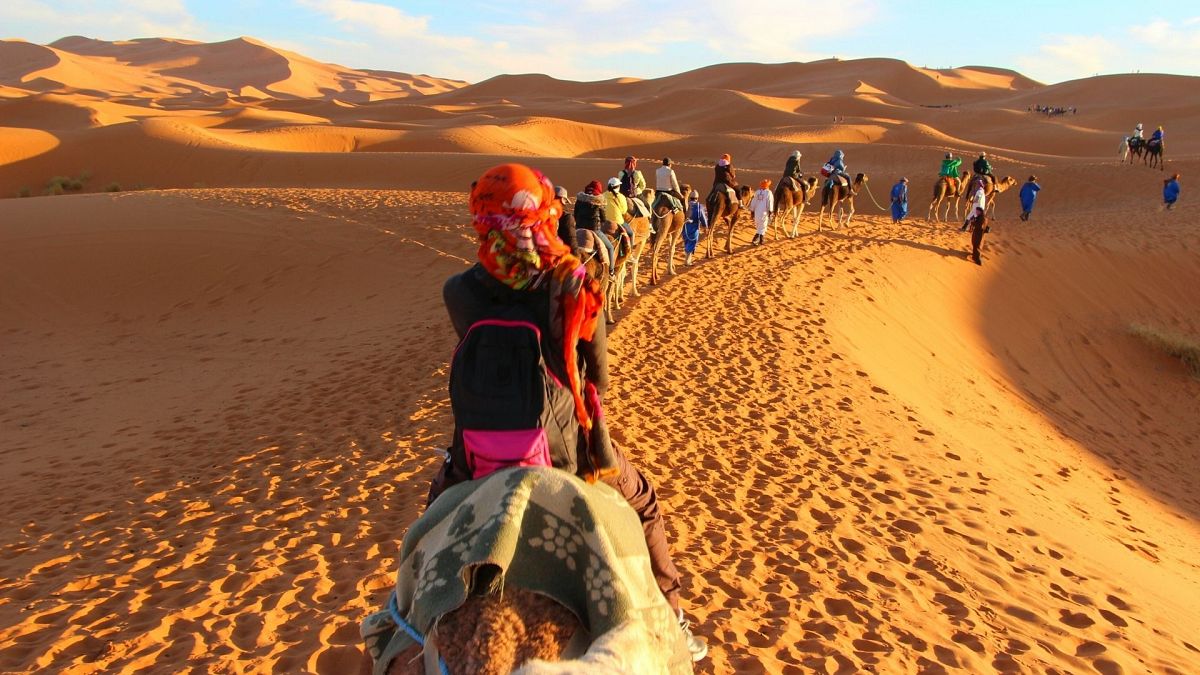
After reopening to tourists in February, Morocco now no longer requires proof of vaccination or a pre-departure test.
Morocco has lifted its remaining COVID-19 travel restrictions. As of 30 September 2022, visitors no longer need to present a vaccine pass or PCR test to enter the country.
However, a passenger health form must still be completed before entry.
After banning international flights and ferry services amid November 2021's omicron outbreak, Morocco lifted its ban on international flights and reopened to tourists on 7 February 2022.

What are the rules for entering Morocco?
Passengers travelling to Morocco no longer need to present a vaccination pass or a negative PCR test result before boarding the plane.
However, you must still complete a health form before entry.
Upon arrival at the airports, random rapid antigen tests may still be conducted for selected groups of passengers. Additional PCR tests may also be required after 48 hours of arrival for randomly selected passengers.
There are no entry requirements for children under 6 years old.
Visitors should also take into account that once in Morocco, masks and temperature checks are required at cafes, restaurants, cultural sites, on public transport and in taxis.
- UPDATED: Where can I travel in Europe? A list of COVID entry rules for every European country
The best things to do in Morocco
Walk essaouira’s winding medieval streets.
On Morocco’s Atlantic coast, the town of Essaouira is perhaps best known for its link to Game of Thrones .
It was used as the filming location for the fictional city of Astapor in season three of the TV series. You might recognise it from the scene where Daenerys first meets her army of the Unsullied.
Aside from its appearance on the small screen, the UNESCO World Heritage-listed city is also a hub for culture. Meandering through its narrow alleys you’ll find shops selling local arts and crafts, restaurants and cafes. There’s far more than the standard pottery stalls and rugs to be found here.
Beware, though, as it’s also known for how windy it is. You might want to cover up your hair and be careful when walking on the seafront, especially if you’re with small children.
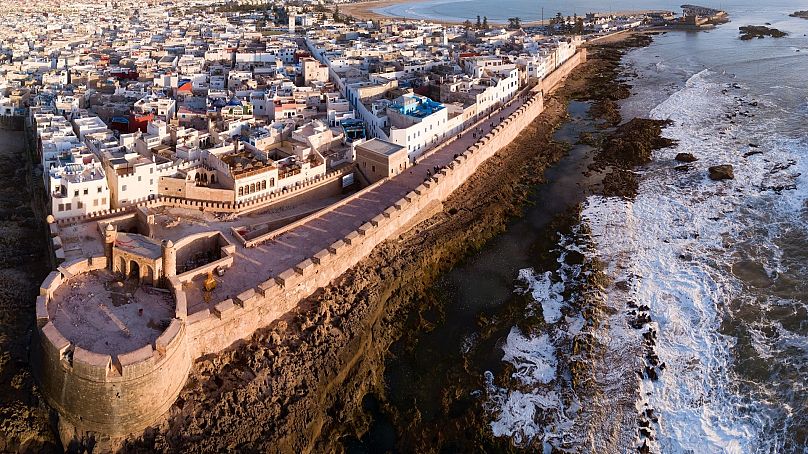
- What will holidays look like in 2022? Here are the top trends from Madrid’s huge travel fair
- Which country has the world's most powerful passport?
Sample delicious traditional dishes
One of the top reasons to visit Morocco has to be the food. Smells of authentically spiced tagines, falafel and pastries waft through the streets of most cities. Mint tea is a welcoming gesture in Moroccan culture so you’re almost certain to be offered this sweet green tea during your stay too.
If you want a really traditional taste of Morocco’s cuisine then head to the Berber villages and camps for homemade food. Called Amazigh, the traditional cuisine has a range of different influences from across North Africa including the Atlas Mountains and the Sahara Desert.
Visit the Jardin Majorelle, Marrakech
This two and a half acre botanical garden was restored by Yves Saint Laurent and his partner in 1980.
It was originally designed by painter Jacques Majorelle in the 1920s using an artist’s colour palette.
Water is central to the garden with lily ponds, fountains and streams offering a welcome oasis in the centre of the hot city. As well as a vast collection of plants there’s a courtyard cafe, book and photography shop and a boutique selling items inspired by Saint Laurent. Visit Jardin Majorelle’s website to book your tickets.
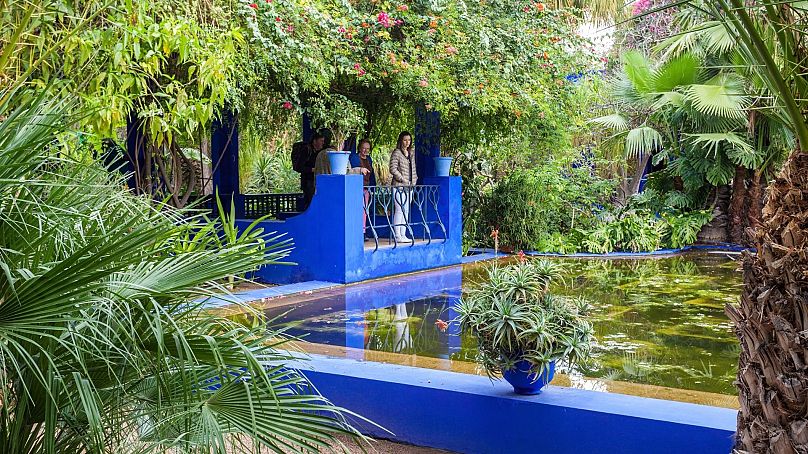
- Cuba: Here are 6 of our favourite reasons to visit the revolutionary island
- Philippines: Why you should visit the tropical archipelago with 7,641 islands
Browse the stalls at a Souk
Souks are probably one of Morocco’s best-known attractions. These markets can be found in most cities and towns selling everything from pottery, fabrics and furniture to slippers and musical instruments.
Most travellers pass through Marrakech during their time in the country and here you can find some of the biggest and best souks. Each sells its own selection of goods but if you are looking for incredible food then head to Jemaa el-Fna square once night falls. Here there are hundreds of stalls selling a range of foods.
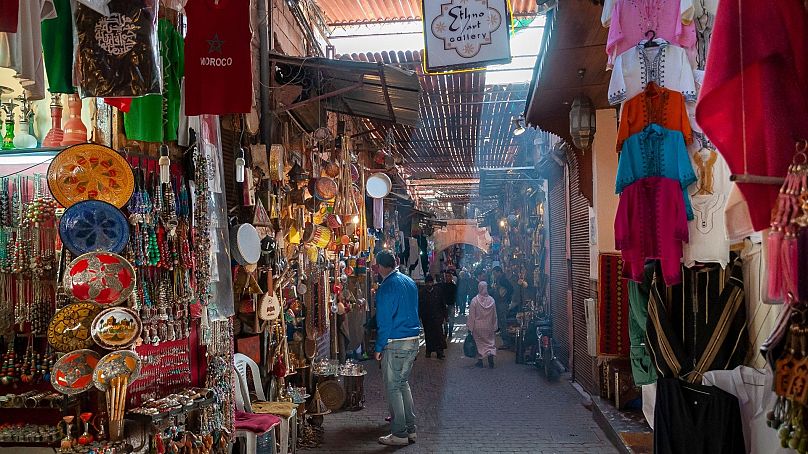
In the centre of the square, storytellers practice a traditional Moroccan art that is a fusion of music, comedy and current events. It's well worth taking the time to sit and savour the experience while you eat.
If you decide to take a stroll through a souk, be aware of who’s around you. Pickpockets are very common so avoid wearing flashy jewellery or carrying lots of cash.
Surf Morocco’s beaches
Warm weather and cheap accommodation mean Morocco is quickly becoming one of the most popular surf destinations in the world. The best time to visit is between December and March but with 1,835km of coastline, there are good waves to be found all year round.
There are loads of great beaches near popular cities like Rabat or Agadir but if you are looking for a serious challenge then head to Morocco’s capital of surfing, Taghazout. Within 15 minutes of this fishing village, there are more than 20 world-class spots to check out.
- The world’s best surfing destinations for beginners
- Four of Europe's best surf beaches to catch a wave
Sunrise in the Sahara
Camping in the Sahara Desert might seem like a daunting prospect but it is the best way to experience its stunning beauty. Plenty of tour operators run trips where everything is arranged for you.
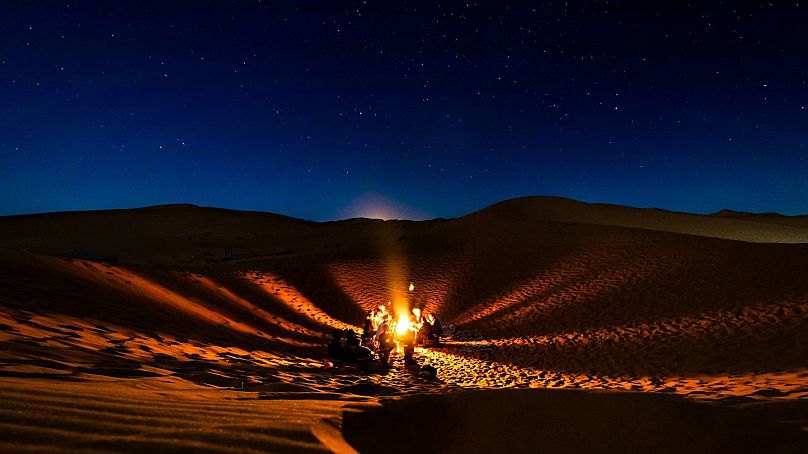
The incredible untainted view of the stars is one of the main reasons to venture out into the sands of the world’s largest desert. Isolated from big cities or towns there is little to no light pollution so you can see hundreds of constellations and even the Milky Way in all its glory.
Once dawn breaks you’ll be able to watch the landscape transform as the sun rises over the desert. If camping isn’t for you then you can also take a camel ride out to experience the Sahara.
You might also like
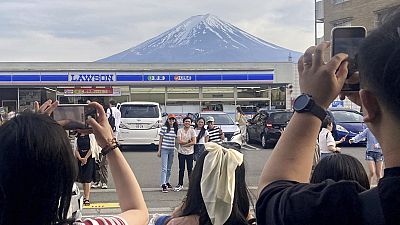
Mount Fuji view blocked by black screen to deter tourists
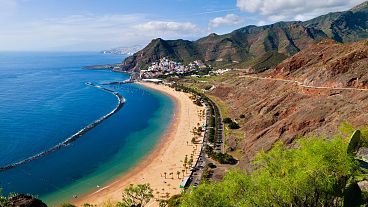
Could Americans be the answer to Tenerife’s overtourism problem?
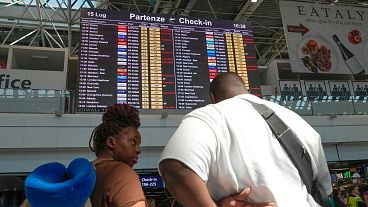
UK, France, Belgium: Travel strikes planned for April and May
KINGDOM OF MOROCCO MINISTRY OF FOREIGN AFFAIRS AFRICAN COOPERATION AND MOROCCAN EXPATRIATES
The Embassy
- Welcome Message
- Embassy Officers
- Announcements
Bilateral Relations
- Morocco-India
- Morocco-India Relations from Ibn Battuta to the 21st Century
- Agreements & MoUs Signed between the Kingdom of Morocco and the Republic of India
- Morocco-Maldives
- Morocco-Sri Lanka
- Morocco-Nepal
- Morocco-Bhutan
- Consular Section
- Honorary Consulates
- Registration
- National ID Card
- Civil Status
- How to apply
- Application Forms
- Travel conditions to enter Morocco
About Morocco
- History & more
- HM King and Political System of Morocco
- Culture and tourism
- Morocco's Economy & main industries
- Morocco's Presence in Africa
- HM King Mohammed VI inaugurated, on Tuesday, the extension, redevelopment and modernization project for the Terminal 1 of Casablanca Mohammed V Airport
- Morocco, EU Sign Fisheries Agreement in Brussels
- Strong Royal Impetus to Rabat Old Medina Rehabilitation and Upgrading Programs.
- Publications
The Moroccan Sahara
- The Moroccan Sahara Issue - Historical Overview
- The Moroccan Sahara - Illusions and Realities about the conflict
- The Moroccan Initiative for Negotiating an Autonomy Statute for the Sahara Region
KINGDOM OF MOROCCO
MINISTRY OF FOREIGN AFFAIRS AFRICAN COOPERATION
AND MOROCCAN EXPATRIATES
Embassy of the Kingdom of Morocco in the Republic of India
For full functionality of this site it is necessary to enable JavaScript. Here are the instructions how to enable JavaScript in your web browser :
- (open in new tab)
26 February 2023
Health Form no more required to enter Morocco
The Embassy would like to inform all travelers planning to visit Morocco that the presentation of the passenger health form is no longer required upon entry to the Moroccan territory.
Travelers can now enter Morocco without having to fill out the health form. However, it is important to note that visitors are still required to comply with all other health measures in place, such as wearing face masks and maintaining physical distancing.
We hope that this information will be useful to all travelers planning their trips to Morocco.
For further information, please visit the official website of the National Airports Office (ONDA) or contact your airline or travel agent.
30 September 2022
Following the decision of the Moroccan authorities, the health restrictions (PCR or Vaccinal Pass) at the entrance to Moroccan territory are lifted starting from today. Only the passenger's health form must be presented duly completed.
28 May 2022 / New travel conditions to enter Morocco:
- The valid COVID - 19 vaccine passport (administration of three doses or, only two doses, the administration time of the 2 nd not exceeding 4 months, with the exception of the Johnson & Johnson vaccine, where a single dose is equivalent to 2 doses of the other vaccines)
- Negative result of PCR test of less than 72 hours (time between sampling and boarding).
Passenger's health form , to be downloaded online before boarding (also distributed on board), duly completed LINK ;
Concerning children:
- For children from 12 to 18 years old : a valid vaccination passport means receipt of two doses.
- No access conditions are applied for children under 12 years old;
Nine (9) Covid-19 vaccines are accepted in Morocco:
- AstraZenica
- Pfizer/BioNTech
- Janssen (by Johnson & Johnson)
Useful link:
https://www.onda.ma/en/I-am-passenger/Traveller-Guide/Coronavirus-Passenger-information
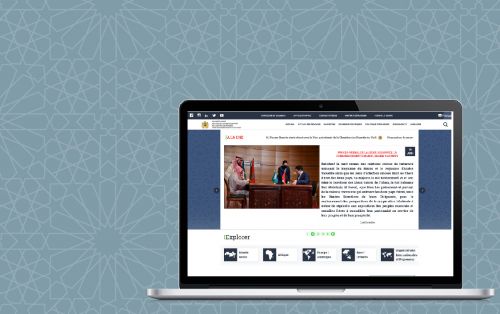
Morocco Worldwide
Learn more about
the Moroccan
diplomatie.ma
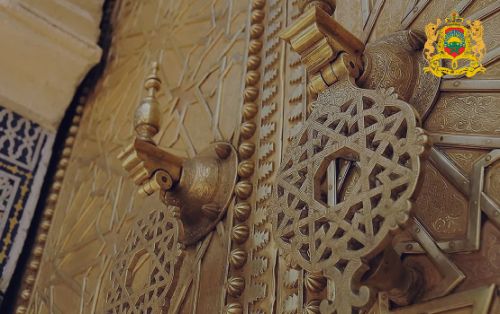
consulat.ma
Guide to consular
for Moroccans
- 01140564253/ 01140564257 / (Fax) 01140564257
- [email protected]
- C-7/5, Vasant Vihar New Delhi - 110057
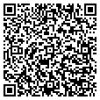
Embassy of the Kingdom of Morocco New Delhi
Find all the news of Moroccan diplomacy on the website of the Ministry of Foreign Affairs, African Cooperation and Moroccan Expatriates
- Search Please fill out this field.
- Manage Your Subscription
- Give a Gift Subscription
- Sweepstakes
Morocco Is Open to Vaccinated Tourists — What to Know
Travelers must be vaccinated to enter.
:max_bytes(150000):strip_icc():format(webp)/alison-fox-author-pic-15f25761041b477aaf424ceca6618580.jpg)
Morocco has officially welcomed tourists back after being closed to visitors due to the COVID-19 pandemic.
The North African country has reopened its airspace to flights to and from Morocco on Monday, a milestone which was first announced by the Ministry of Foreign Affairs, African Cooperation and Moroccan Expatriates in January.
According to the U.S. Embassy and Consulates in Morocco , travelers will need a vaccination pass issued by the Moroccan government, along with a negative PCR test taken within 48 hours of departure. Upon arrival, travelers must then undergo a rapid antigen test and if applicable, comply with random COVID-19 testing, the U.S. Embassy states.
While the country's air space will reopen, passenger ferries continue to be suspended, the Embassy noted.
In Morocco , proof of vaccination is required to enter most private and public establishments, including hotels, restaurants, cafes, and public modes of transportation, according to the Embassy. The Embassy recommends U.S. citizens carry their paper CDC vaccination card as proof they have been inoculated.
Morocco is currently classified as a "Level 3" destination by the Centers for Disease Control and Prevention , indicating a "high" level of COVID-19 transmission in the country. Morocco saw a small spike in coronavirus cases in mid-January, but those have started to decline and the country is reporting about 2,500 new infections on average each day, according to Reuters , which is tracking cases around the world.
Travelers who are ready to visit should plan to explore the authentic food vendors and medinas in Casablanca , the rolling sand dunes in the Sahara desert , the narrow streets of Fez (and the smells of the tanneries), and experience an indulgent afternoon tea in Marrakech before eating their way through the Jemaa el-Fnaa square at night.
Alison Fox is a contributing writer for Travel + Leisure. When she's not in New York City, she likes to spend her time at the beach or exploring new destinations and hopes to visit every country in the world. Follow her adventures on Instagram .
Stay up to date with notifications from The Independent
Notifications can be managed in browser preferences.
UK Edition Change
- UK Politics
- News Videos
- Paris 2024 Olympics
- Rugby Union
- Sport Videos
- John Rentoul
- Mary Dejevsky
- Andrew Grice
- Sean O’Grady
- Photography
- Theatre & Dance
- Culture Videos
- Food & Drink
- Health & Families
- Royal Family
- Electric Vehicles
- Car Insurance deals
- Lifestyle Videos
- UK Hotel Reviews
- News & Advice
- Simon Calder
- Australia & New Zealand
- South America
- C. America & Caribbean
- Middle East
- Politics Explained
- News Analysis
- Today’s Edition
- Home & Garden
- Broadband deals
- Fashion & Beauty
- Travel & Outdoors
- Sports & Fitness
- Sustainable Living
- Climate Videos
- Solar Panels
- Behind The Headlines
- On The Ground
- Decomplicated
- You Ask The Questions
- Binge Watch
- Travel Smart
- Watch on your TV
- Crosswords & Puzzles
- Most Commented
- Newsletters
- Ask Me Anything
- Virtual Events
- Betting Sites
- Online Casinos
- Wine Offers
Thank you for registering
Please refresh the page or navigate to another page on the site to be automatically logged in Please refresh your browser to be logged in
Morocco travel rules: What are the latest restrictions for holidaymakers?
Everything you need to know before you go, article bookmarked.
Find your bookmarks in your Independent Premium section, under my profile
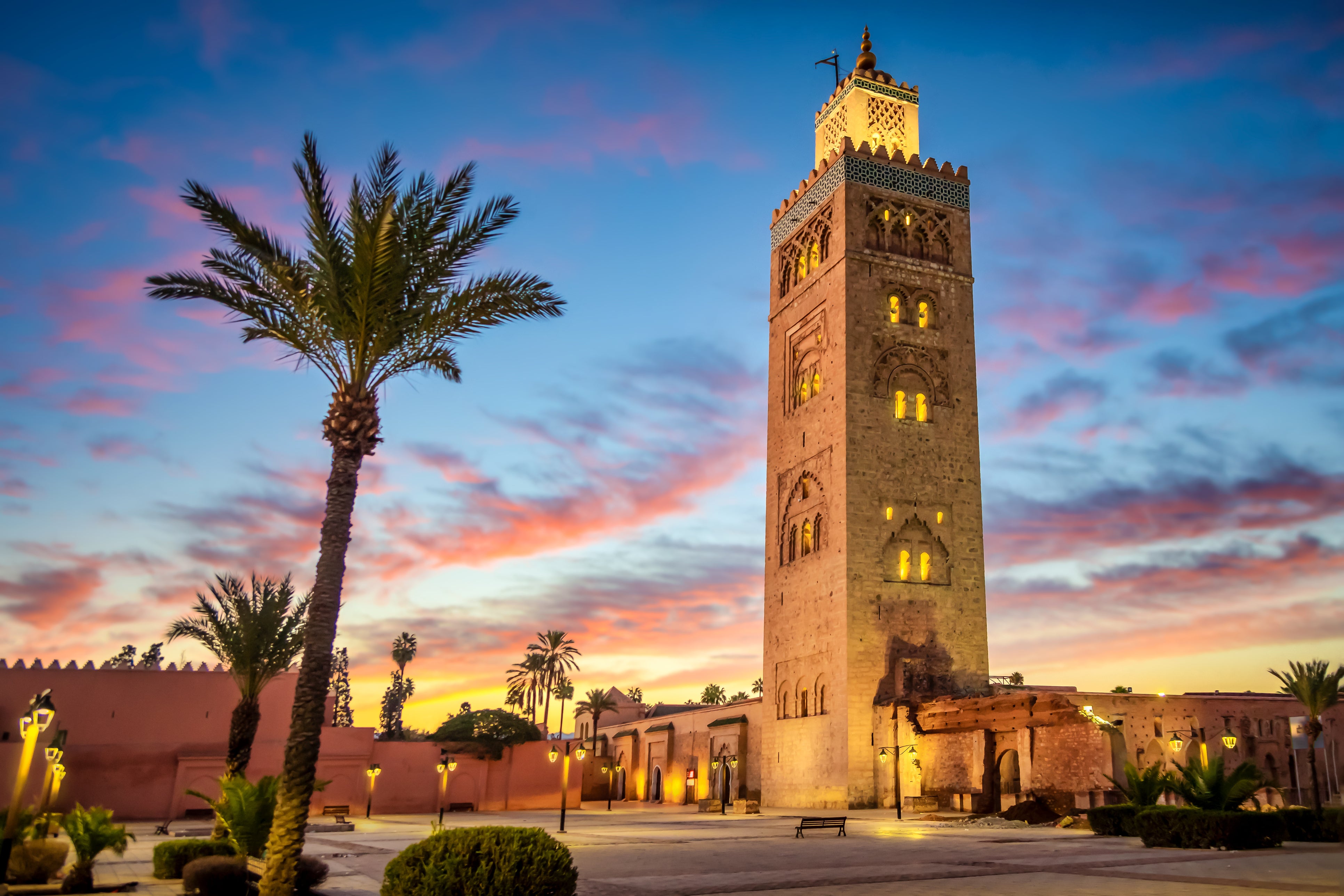
Sign up to Simon Calder’s free travel email for expert advice and money-saving discounts
Get simon calder’s travel email, thanks for signing up to the simon calder’s travel email.
From being on the UK’s now-defunct red list to barring all Brits when the Omicron variant started spreading at a pace: Morocco has been on quite the journey when it comes to letting travellers in during the pandemic.
Entry rules for tourists have now been relaxed but not all restrictions have been dropped.
Here’s what to know when planning a trip.
Do you need to be vaccinated to enter Morocco?
No, but those who aren’t fully vaccinated must present a negative PCR result from a test taken within 72 hours of boarding. You must show either proof of vaccination or the PCR test result at the border on arrival.
Notably, to be considered “fully” vaccinated, travellers to Morocco must have had three vaccine doses - the initial two plus a booster jab - or have had their second vaccine dose within the previous four months. Morocco accepts the UK’s NHS digital Covid Pass as proof of vaccination. Children under the age of 12 are exempt.
Do you need to take a Covid test to enter Morocco?
Only if you’re aged 12 and over and are not fully vaccinated, per the definition above.
After arrival, some passengers may be randomly selected to take a rapid antigen upon entry or a PCR test 48 hours later.
Certificates of Covid-19 recovery are not accepted by the Moroccan authorities as an alternative to a negative PCR test result.
Do I need to fill in a passenger locator form?
Yes: all passengers are required to download, print and sign a passenger health form before arrival in Morocco.
Do I need to wear a mask or follow any other Covid guidelines?
Face masks remain mandatory in public spaces.
Hammams, public swimming pools and sports facilities are permitted to operate at 50 per cent capacity, and restaurants, coffee shops, shops and supermarkets must close at 11pm.
A vaccine pass is required to enter public places including hammams, gyms, cafes, restaurants, hotels, shops and sports halls. Morocco will accept the UK’s proof of Covid-19 vaccination record.
Do I need a visa?
British passport holders don’t need a visa to enter Morocco for tourism for stays of up to three months.
When entering the country, make sure your passport is stamped. Some tourists have experienced difficulties exiting the country because their passport doesn’t have an entry stamp.
How much time do I need left on my passport?
Your passport should be valid for the proposed duration of your stay in Morocco. However, the Moroccan Consulate General in London advises having a minimum of three months validity left on your passport on your date of entry into Morocco.
Join our commenting forum
Join thought-provoking conversations, follow other Independent readers and see their replies
Subscribe to Independent Premium to bookmark this article
Want to bookmark your favourite articles and stories to read or reference later? Start your Independent Premium subscription today.
New to The Independent?
Or if you would prefer:
Want an ad-free experience?
Hi {{indy.fullName}}
- My Independent Premium
- Account details
- Help centre
- Chefchaouen
- Essaouira - Mogador
- El Jadida - Mazagan
- Ancient Cities of Morocco
- Imperial Cities of Morocco
- Natural Destinations
- Sports Holidays
- FAQ about Morocco
- Where is Morocco?
- Moroccan culture
- Retiring in Morocco
- Cost of Living in Morocco
- Safety and Security
- Get a Passport and a Visa
- Dirham Currency Exchange rate
- Morocco Map
- Weather in Morocco
- Current time in Morocco
- Useful Telephone numbers in Morocco
- Ramadan Dates and public holidays
- Religion in Morocco
- Agadir Restaurant Guide
- Casablanca Restaurant Guide
- Essaouira Restaurant Guide
- Fes Restaurant Guide
- Marrakesh Restaurant Guide
- Meknes Restaurant Guide
- Ouarzazate Restaurant Guide
- Rabat Restaurant Guide
- Tangier Restaurant Guide
- Packing List
- Travel insurance for Morocco
- The Best Travel Guidebooks for Morocco
- Best Time to Visit Morocco
- Henna Tattoos
- Traveling alone as a Woman
- Food Precautions
- Immunizations
- Preventing Heat Stroke
- Moroccan First Names
I am a foreign national living abroad. Can I travel to Morocco?
The Kingdom of Morocco is open for tourism, and flights have resumed, land, ferry and air borders are reopened, and we welcome you to travel to the Morocco.
Following the decision of the Moroccan authorities since 27th February 2023, travelers wishing to travel to Morocco, does not need any required document or any vaccination proof in order to enter Moroccan territory .
Related articles : Information
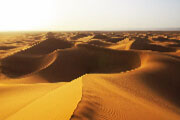
→ All you need to know about Travel insurance for Morocco ←
Advertisement
Mulling over Morocco? 6 questions to ask before visiting in 2022

Aug 17, 2022 • 6 min read
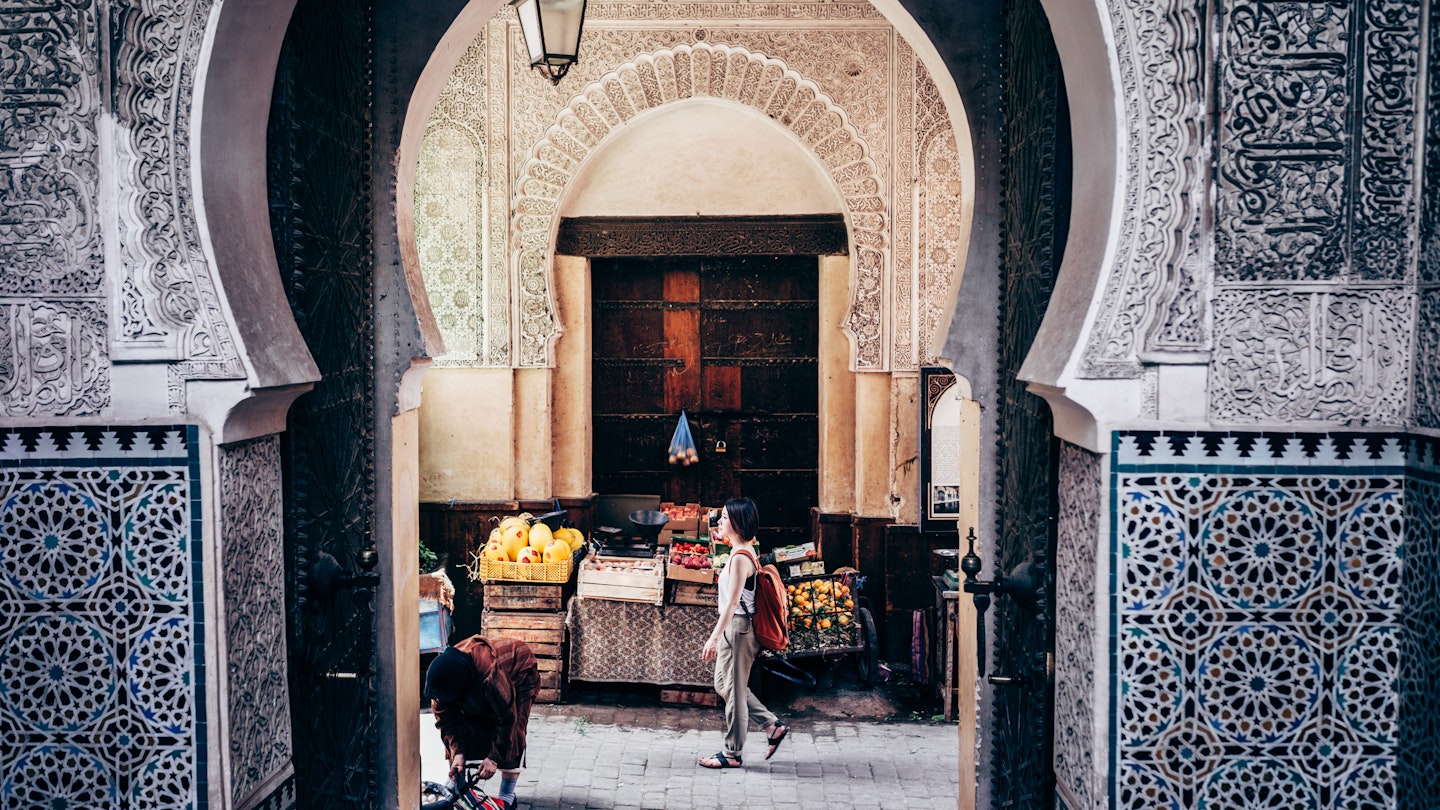
Headed to Morocco soon? Here are some top tips from a Morocco local to help you travel smart © Oscar Wong / Getty Images
You can see the sense of relief on the faces of shopkeepers and restaurant and hotel staff as they welcome you in. Borders are open, restrictions mostly lifted and Morocco 's impressive cities, magnificent mountains and expansive beaches are welcoming visitors once again.
In 2018, almost 10 million people visited Morocco, but the pandemic put a wrench in the works for tourism, and less than half as many visited in 2019. While levels have still to catch up with pre-pandemic times, the Minister of Tourism, Fatim-Zahra Ammor , reports that 3.4 million tourists arrived in the first half of 2022. She's hoping to push that to 8 million in total in 2022 and a whopping 10.5 million next year.
Tourism is one of the key industries driving economic growth in Morocco, so it's no wonder that there's that palpable sense of relief now that tourists are coming back. Numbers are still low, but hopes are high.
So if you're one of the tourists planning to visit Morocco soon, what do you need to know before you go?
Morocco's best food experiences
What are the requirements for entry?
Morocco has declared an end to the latest wave of the Omicron variant and cases of COVID have dropped substantially to single-digit figures of positive cases. That's not to say it's over, though, and there are still requirements, such as wearing a mask on public transport and when you enter a hotel or restaurant.
To enter the country, you’ll need to download and complete the new, streamlined health form that is also handed out on flights and at airports. It takes account of Monkeypox as well as COVID, but only one case of the former has been recorded so far in Morocco .
You'll also need a vaccination certificate or proof of a negative PCR test taken within 72 hours of departure. Children under 12 are exempt from these rules.
16 essential places to visit in Morocco
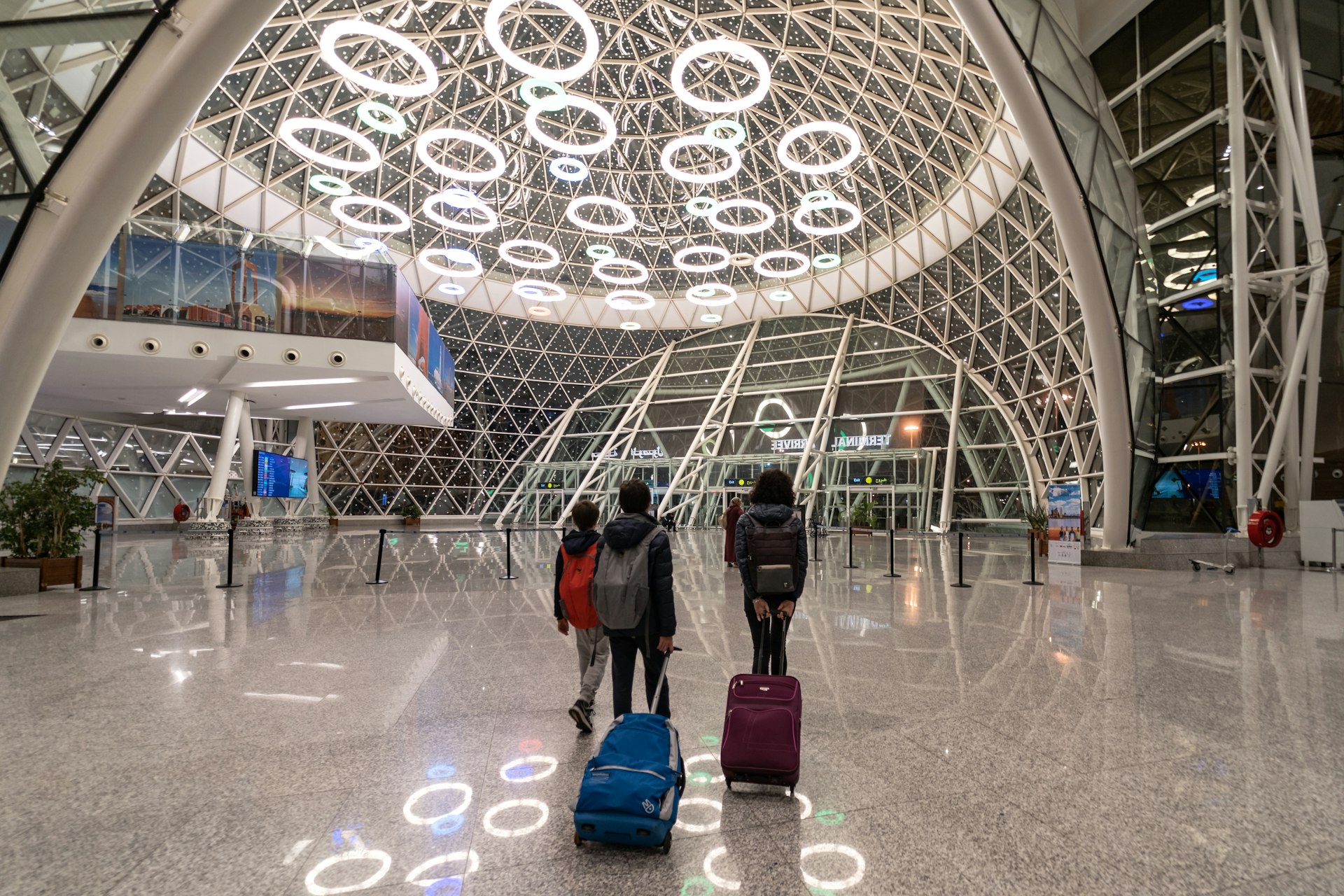
What's the airport situation?
While air traffic controllers were poised to strike in August, they have been persuaded to stay in their posts after recent successful negotiations . As far as luggage is concerned, there is none of the upheaval being experienced in European airports . But keep an eye on the airport authority's ONDA Twitter account (only in French) as they are reporting issues such as flight delays caused by blockages on incoming flights from Europe .
Morocco's 10 best beaches

Are there any disruptions to be aware of?
Protests: Occasionally there are protests outside government buildings on Avenue Mohammed V in Rabat, and in Casablanca . There'll likely be a protest about the rising cost of living in the coming weeks. Protests are generally peaceful but if you don't want to get swept up in crowds of people, follow advice from your embassy and avoid the areas on protest days.
Wildfires: Just like in other areas of the Mediterranean, wildfires have broken out along the coast of Morocco and destroyed acres of forest in the Rif Mountains , specifically the Bouhachem National Park around the tourist-friendly towns of Larache , Chefchaouen and Tetouan . Talassemtane National Park has also been affected , particularly the area of the park near Akchour . The areas affected are all popular hiking routes so if you're heading out, be sure to seek the advice of a knowledgeable guide.
Drought: Morocco has been in a severe drought for some years. If you're going to the Sahara, try to choose eco-sensitive camps re-use their grey water, or have a sustainable water filtration systems and don't dump waste in dry riverbeds. In the cities, you can be supportive of the environment by taking quick showers instead of bathing, and choosing a hotel or riad sporting La Clef Verte logo. These establishments promote sensible use of natural resources as well as good working conditions for staff.
The best time to go to Morocco, depending on what you want to see and where you want to go
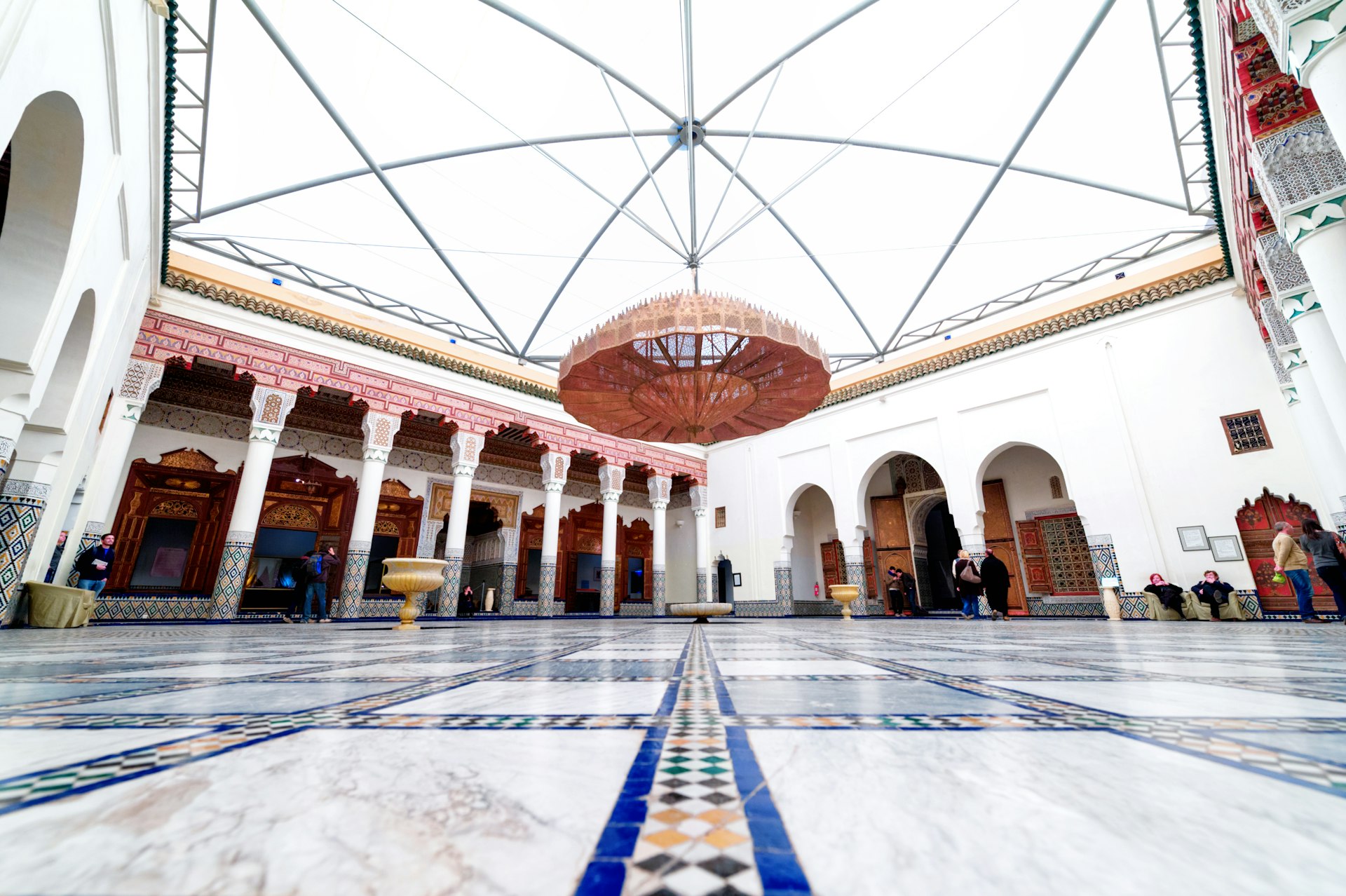
Are museums open?
Closed for renovations now is the Batha Museum in Fez but a sparkly new version is due to open its doors again in January 2023, located as before in the old summer palace of the sultan with its lovely garden. The Heri Es-Souani granaries in Meknes are also being restored and are scheduled to reopen sometime in 2023 (insha'Allah). And slated to open in September this year is the spectacular, Zaha Hadid-designed Grand Theatre in Rabat.
The award-winning Yves Saint Laurent Museum Marrakech reopens on September 17 after the summer break with a new temporary exhibition that will feature paintings of Morocco by French artist Théophile-Jean Delaye.
At the Majorelle Garden , gates open earlier than usual at 8am so you can beat the heat and the crowds. You can book online for easy access, too. In the garden, the Pierre Bergé Museum of Berber Art has just reopened after a period of renovation.
Why you should embrace Berber culture on your Moroccan adventure
Is anything exciting planned for the rest of 2022?
After a couple of years of no festivals, Morocco is ready to throw a party for the rest of 2022, and in 2023 everything is expected to be back to normal.
September: Dance your way to the Into the Wild boutique festival on September 23 and 24 in Dakhla . The festival is an offshoot of the Oasis Festival in Marrakesh and features electronic, house and techno music, and wellness activities like yoga on the beach.
Where to find five of Morocco’s best music festivals
October: On another spiritual level, the Fes Festival of Sufi Culture will take place in Fez from October 22-29. With a theme of Science and Conscience , there will be masterclasses and debates around Sufism, the esoteric branch of Islam, all in French. Perhaps more accessible, though, are the international music performances. You can enjoy Indian dance and Qawwali music, songs from Azerbaijan and performances by Sufi brotherhoods from Morocco and Kosovo. There's also Christian chant from Brittany in France, Sufi chants and the mesmeric whirling dervishes from Konya in Turkey.
November: The Marrakech International Film Festival is scheduled for November 11-19. Keep an eye on the website to see what movies will be screened and who will be on the jury. Some movies are shown on a screen in Djemaa El Fna Square that are free for everyone.
How to make Moroccan ras el hanout
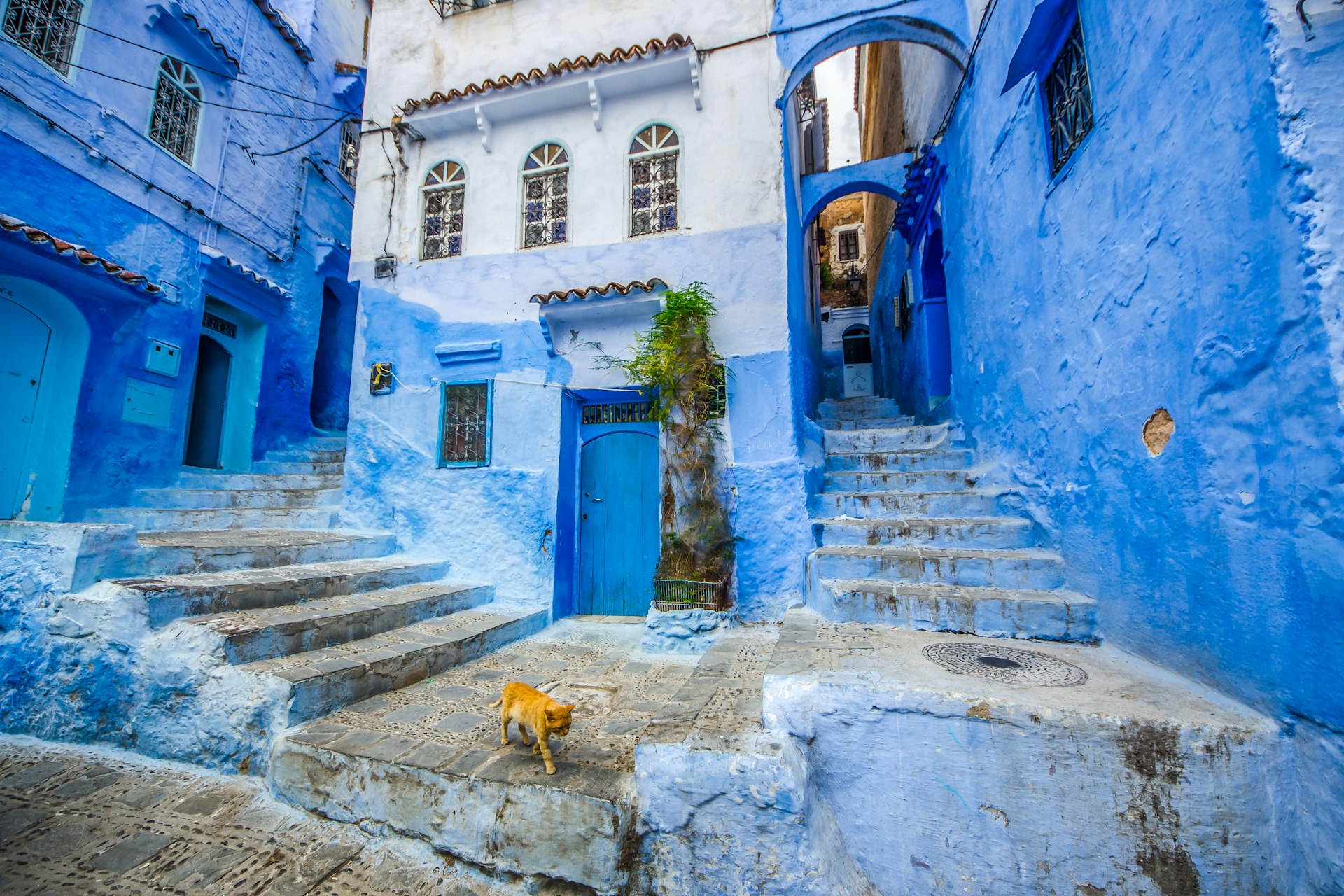
What useful apps should I download before my trip?
If you plan to travel across Morocco, you should download the app for the ONCF train company and its Supratours buses that serve towns with no railway. The other top bus company, CTM , has a website showing their daily schedules. An important thing to note is that you can't book busses or trains online with a foreign bank card. But booking in advance, especially for busy destinations like Chefchaouen, is pretty much essential these days. The solution is to book through Marrakech Tickets who will send you your tickets electronically (or even deliver them to your riad if you're staying in Marrakesh) for a small fee, some of which goes towards supporting local vulnerable children.
While many Moroccans speak English, the local language is Darija (Moroccan Arabic), with some French thrown in (and Spanish in the north). If you want to impress the locals, Darija Direct is an app that will help you get to grips with the Darija language.
The best hikes in Morocco's High Atlas Mountains
Explore related stories
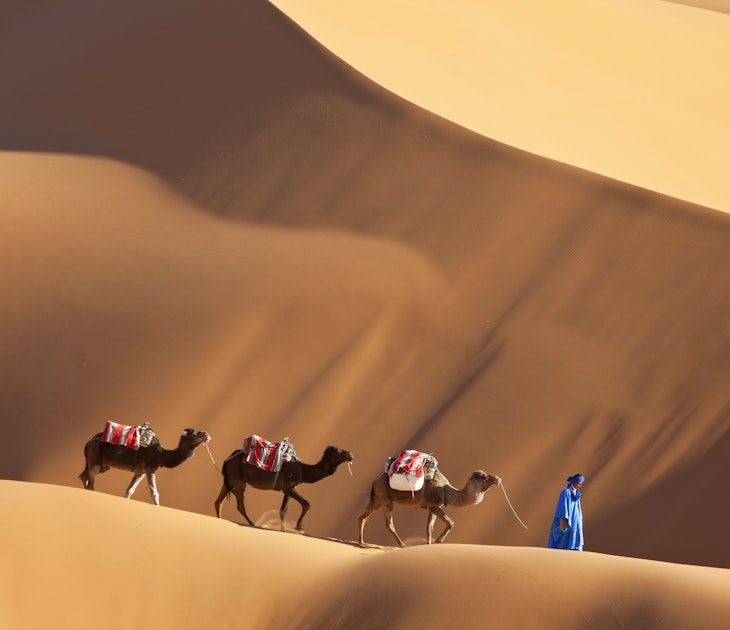
Festivals & Events
Mar 11, 2024 • 5 min read
Morocco is a fantastic year-round vacation destination, but the best time of year to travel will depend on your interests and holiday needs.
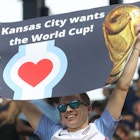
Feb 7, 2024 • 5 min read

Jan 31, 2024 • 6 min read

Jan 27, 2024 • 15 min read

Jan 17, 2024 • 8 min read
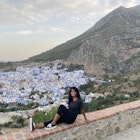
Jan 17, 2024 • 6 min read
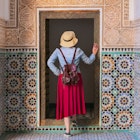
Nov 29, 2023 • 6 min read
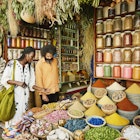
Nov 24, 2023 • 8 min read
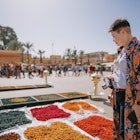
Nov 20, 2023 • 5 min read

Oct 15, 2023 • 7 min read
Cookies on GOV.UK
We use some essential cookies to make this website work.
We’d like to set additional cookies to understand how you use GOV.UK, remember your settings and improve government services.
We also use cookies set by other sites to help us deliver content from their services.
You have accepted additional cookies. You can change your cookie settings at any time.
You have rejected additional cookies. You can change your cookie settings at any time.
- Passports, travel and living abroad
- Travel abroad
- Foreign travel advice
Safety and security
There is a high threat of terrorist attack globally affecting UK interests and British nationals, including from groups and individuals who view the UK and British nationals as targets. You should remain vigilant at all times.
UK Counter Terrorism Policing has information and advice on staying safe abroad and what to do in the event of a terrorist attack. Find out how to reduce your risk from terrorism while abroad .
Terrorism in Morocco
Terrorists are very likely to try to carry out attacks in Morocco.
Two tourists were murdered while hiking near Mount Toubkal in 2018. Moroccan authorities arrested four individuals in connection with the murders, including one who had links to “an extremist group”.
There is an increased threat linked to the number of Moroccans sympathetic or belonging to Daesh (formerly ISIL) and other extremist groups. Authorities regularly disrupt terrorist cells.
Places at higher risk of attack include:
- crowded areas
- government installations
- transportation networks
- businesses with Western interests
- areas where foreign nationals and tourists are known to gather
Be vigilant in these areas and follow any specific advice of the local security authorities.
Protective security measures, including security guards, may be present in areas, including hotels and sites popular with tourists.
While there have been no recent kidnappings of foreign nationals in Morocco, it cannot be ruled out. There is a threat of kidnapping by groups operating in North Africa, particularly from:
- groups originating in the Sahel
This includes Al Qaeda in the Islamic Maghreb (AQ-IM) and Daesh-affiliated groups, who may travel illegally across the border. There is a heightened risk of kidnap in the border and remote desert areas of North Africa. This has been done for financial gain and for political leverage.
Terrorist groups have kidnapped:
- government officials
Those working in the tourism, humanitarian aid work, journalism or business sectors are viewed as legitimate targets. If you’re kidnapped, the reason for your presence is unlikely to serve as a protection or secure your safe release.
The policy of the British Government is not to make substantive concessions to hostage takers. The British Government considers that paying ransoms and releasing prisoners increases the risk of further hostage taking. The Terrorism Act (2000) also makes payments to terrorists illegal.
Political situation
There is a currently a heightened chance of demonstrations and protests occurring across the country. You should avoid these gatherings, and be aware of the potential for protests to occur spontaneously. Protests can happen at short notice and are generally heavily policed. Demonstrations are mostly peaceful but there has been isolated violence. Demonstrations and protests may lead to increased travel disruption in affected areas.
Follow any media reporting and instructions from local security authorities. Avoid political gatherings and demonstrations.
Western Sahara
See our travel advice for Western Sahara if you plan to travel to this disputed territory.
Algerian border
It is illegal to cross an international border without authorisation. The land and maritime border between Morocco and Algeria is closed. The border is patrolled and monitored closely by the authorities. Do not attempt to cross the border.
If you are in a boat or jet ski, ensure you know where the maritime border is and remain clearly within Moroccan waters. Ensure you have enough fuel to return to shore. As happened in August 2023, individuals entering Algerian waters illegally are likely to be intercepted and investigated.
If you’re hiking in the Atlas mountains, you should:
- research the trail and its requirements, such as required level of experience
- pack essentials such as water, sunscreen, and appropriate clothing
- hire a professional guide
- take out comprehensive travel insurance to make sure it covers the type of adventure holiday you are planning
Protecting your belongings
Incidents of violent crime occasionally happen. There have been incidents involving the use of knives against tourists in street attacks, thefts and burglaries in major cities and along beaches. Avoid quiet areas, particularly after dark. Don’t carry large amounts of money or valuables around with you.
Petty crime
Petty crime is common, especially in tourist areas like the medina quarter (historical district) of towns/cities and on beaches. Crimes include:
pickpocketing
bag snatching
drive-by motorcycle theft of visible jewellery and handbags
Be vigilant when asking for directions and using ATMs as crime and aggressive begging can happen. Credit card fraud and scams like substituting inferior goods for those that were bought are common. Remain alert to potential confidence tricks.
Harassment of tourists
Harassment of tourists by people posing as official tourist guides is common.
When visiting the medina quarter (historical district) of a town or city, make sure any guide you use is operating with the agreement of the local tourist authorities, and displays an official badge.
Marriage fraud
Be cautious when travelling to Morocco for a relationship, or to meet someone you met on the internet. There have been incidents of marriage fraud and attempted extortion affecting British nationals. Make sure you keep your return ticket, passport and personal belongings safe.
Laws and cultural differences
Islamic laws and customs.
Morocco is a Muslim country, which follows Islamic laws and customs. You should:
- be aware of your actions to ensure they don’t offend, especially during the holy month of Ramadan or if you intend to visit religious areas (see below)
- respect local traditions, customs, laws and religions
- avoid public displays of affection, particularly outside the main tourist areas and near religious places
Sexual relations outside marriage are punishable by law. Hotels can ask couples to show evidence of marriage while checking-in and, if you don’t have proof, they can insist on separate rooms.
Ramadan is a holy month for Muslims. The dates vary by year and country, check when Ramadan is in Morocco before you go. During this time, do not:
- eat, drink, smoke or chew gum in public in the daytime, including in your car
- play loud music or dance
- swear in public
Get more advice when you arrive from your tour guide, hotel or business contacts.
You should also:
- check opening hours of shops and restaurants
- be aware that if hotels and restaurants are providing food or drink in fasting hours, they may separate you from Islamic guests, for example with screens
- follow local dress codes – clothing that doesn’t meet local dress codes may cause more offence at this time
- be aware that driving may be erratic, particularly when people are trying to get home at dusk
LGBT+ travellers
Homosexuality is illegal in Morocco. Be sensitive to local laws and customs and avoid public displays of affection. Complaints can lead to prosecution. See FCDO advice for LGBT+ travellers .
Women travellers
Women, especially when travelling alone, may receive unwanted attention from men. Consider wearing loose-fitting clothing which cover the arms, legs and chest. See our FCDO advice for woman travellers .
Alcohol laws and bans
Alcohol is served in licensed hotels, bars and in tourist areas. Drinking alcohol in the street and anywhere other than a licensed restaurant or bar is illegal and can lead to arrest.
Illegal drugs and prison sentences
Possession, use or trafficking in illegal drugs is a serious offence and can result in a lengthy prison sentence and a heavy fine.
Sending passports in the post
In Morocco, it’s illegal to send passports through the post. British passports sent to or through Morocco by post or courier companies will be confiscated by the Moroccan authorities.
Bibles and religious literature
It is illegal to carry bibles in Arabic, to attempt to distribute any non-Muslim or evangelical literature, or to be involved in any such activity.
Using cameras
Avoid taking any photographs near sensitive political or military sites.
Pornographic material
It’s illegal to possess pornographic material. Possession of recorded writings, printed matter, cassettes and videocassettes and any type of material contrary to morality and public order are prohibited in the Moroccan territory.
Flying drones
You’ll need permission from the authorities to fly a drone. Contact the Directorate General for Civial Aviation (in French) for more information about the rules.
Transport risks
Road travel.
If you’re planning to hire a car, check with your car hire company for information on their requirements before you travel.
Many taxis bookable via mobile phone apps may be unregulated and unlicensed. Drivers may not be registered with the authorities and their vehicle may not have the appropriate levels of insurance for carrying passengers. Such taxis may at times be stopped by the police, who may ask you get out of the car.
You should:
- think carefully before using such unregulated or unlicensed taxis
- use normal ‘Petits’ or ‘Grands Taxis’ where possible
- avoid sharing taxis with other passengers that you do not know
- insist against sharing if your driver tries to pick up other passengers during your journey
International Driving Permit
You need either a 1968 International Driving Permit (IDP) or a valid UK driving licence to drive in Morocco for up to one year. 1949 IDP is not accepted anymore. You cannot buy an IDP outside the UK, so get one before you travel.
If you are staying in Morocco for longer than one year, you need to apply for a Moroccan Driving License .
Car insurance
A green card , which can be obtained from your car insurer, is proof that you have vehicle insurance when driving abroad. You need to carry a green card to prove you have the minimum insurance cover in Morocco.
Road conditions
Drive carefully, especially when:
- driving at night, which be particularly dangerous due to poor lighting
- the weather conditions are poor on secondary routes and mountain roads
- overtaking lorries and trucks that are overloaded and when there is no hard shoulder
Road accidents
If you’re involved in a road accident, complete a form (‘constat amiable’), to be signed by both parties. Blank forms are available on arrival at Tangier port from the insurance company booths and from tobacconists in all cities.
If you’re involved in a road accident resulting in a fatality and the Moroccan authorities consider you responsible, you may be detained pending a trial hearing.
Vehicle documentation
If you enter Morocco with a vehicle, the registration number will be recorded. If you’re not in possession of the same vehicle when leaving Morocco, you’ll be refused exit and detained. You’ll need to provide evidence of motor insurance to border control when entering and exiting Morocco. Always carry your insurance, license and registration documents with you.
Extreme weather and natural disasters
Earthquakes.
Morocco is in an earthquake zone. Minor earthquakes happen occasionally. The last major earthquake was in 2023, which killed almost 3000 people. Familiarise yourself with safety procedures in the event of an earthquake and take note of any instructions in hotel rooms.
There is more information on what to do during an earthquake on the US Centres for Disease Control and Prevention website.
Heavy rain can cause flash flooding in some areas, particularly in the mountains or near rivers during winter months. Walking and driving can be dangerous in flooded areas. If flooding does happen in your area, follow local media and instructions of the local authorities.
Related content
Is this page useful.
- Yes this page is useful
- No this page is not useful
Help us improve GOV.UK
Don’t include personal or financial information like your National Insurance number or credit card details.
To help us improve GOV.UK, we’d like to know more about your visit today. We’ll send you a link to a feedback form. It will take only 2 minutes to fill in. Don’t worry we won’t send you spam or share your email address with anyone.
- cities to visit
- Places To Go
- See & Do
- Practical Information

Morocco Travel Advice changes based on what’s going on right now. We’re here to keep you up to date on everything Morocco-related. Please keep an eye on the page; we’ll be happy to keep you updated.
Table of Contents
travel documents:
A passport is a transport document delivered by the government of your country. In some countries, the ticket must be valid between 3 and 6 months after entry or exit from the country’s territory.
(Inquire about this at the consulate of the country you are going to)
plane ticket
A plane ticket is your ticket to travel. You can buy from the airline or the travel agency, either in the office or over the phone, on the internet, etc. You can also buy them from a travel agency.)
In addition to the traditional ticket, which takes the form of a voucher given to travelers in the form of paper (packed manually or in an automatic way), travelers are offered, today, a second version. It is an electronic ticket.
Indeed, some companies deliver electronic tickets; in this case, travel receipts are given to travelers upon request.
Verification of your identity is mandatory. You are invited to present one of the following valid documents: a national identity card, residence card, or passport.
passenger card
A final document that you received at the end of the procedure. Upon arrival, the traveler will be shown to his boarding gate, assigned a seat, and informed of the final time he can board. At the registration office, most persons receive this paperwork. Online booking is available for some airlines.
(Inquire about it with your company)
residence card
Consult the country’s consulate if you’re unsure whether you’ll require a visa or passport. Citizens of the country will be required to provide their residence cards at the border.
Golden rules for your luggage
• To avoid any confusion during check-in, remove the old tags affixed to your baggage.
• Indicate your name and address legibly in your country and abroad. It is recommended to put a distinctive mark on each bag (tape, tape..) for easy identification on arrival.
• Do not put valuables in the bags carried to the aircraft stores.
• Be sure to wrap the fragile items
• Do not accept any bag or parcel for any other person.
• Keep your medical treatments and prescriptions with you.
• Inform the airport agents of every neglected bag or parcel.
• Never leave your luggage unattended, even for a short moment. It will be suspicious and destroyed.
• Dimensions and weight of hand baggage are minimal. They use the airline. Note that these limits vary by company. Watch out if you’re going to get on another plane.
Security and customs
– It is in your interest to take the initiative to perform the security measures!
– These measures are completed before entering the boarding hall. Hand baggage passes through the X-ray monitor and may be the subject of a manual search.
– If you carry keys or metal objects in your pocket, put them on the mat of the X-ray monitor. It will prevent the acoustic alarm from operating as you pass the detection corridor.
– Due to strengthening security measures in air transport, you must perform the same operations for all items (iron or not) that you carry (watch, bracelet, necklace, etc.) and your jackets or coats. For small items, there is a basket at your disposal. You’ll receive these things or clothing after you’ve passed through the detecting area.
– We don’t want you to put anything that could hurt you, like a penknife, scissors, a cutting machine, a weapon, or anything that looks like a weapon. Your entire possessions will be confiscated during a security check. You won’t get your money back if it’s destroyed.
– If you carry a pacemaker or any other implanted device (insulin pump, even some hearing aids), tell the security guard and do not cross the hallway; you will not be exempted from the body search.
Also, be aware that you may be asked, before boarding the aircraft, to search your Checked Baggage as an extra precaution.
Finally, make sure to leave your luggage at the air terminal.
Order prohibited items
These lines concern the various forms represented in weapons and tools of regulated use.
However, common sense allows whether a tool can be used as a weapon.
When a projectile is fired with the help of detonation or compressed air and gas, it is called a weapon. Includes pistols used to start sports games or guns that send signals for help.
Knives and other sharp tools:
Knives with a blade at least 6 centimeters long, knives that aren’t allowed by local law, and other knives with an edge at least 6 centimeters long are not allowed.
Sticks, batons, and baseball bats are examples of non-bleeding tools.
Explosives/ammunition / flammable liquid / corrosive substances:
Any explosive or incendiary substance alone or mixed with another sense can cause an explosion or a fire. This category includes combustible materials, detonators, pyrotechnic materials, munitions, or any combination. Any corrosive or toxic substance, including gas, whether pressurized or not.
Neutral and disabled tools:
Tear gas, incapacitating substances, or any chemical or similar product contained in a gun, bomb, or other container and other neutralizing devices such as electronic devices that immobilize or neutralize by discharging an electrical charge.
Other articles, such as ski spears, climbing sticks, razors, and sharp scissors, are, in general, not considered deadly or dangerous weapons but may, nevertheless, be used as weapons, as well as toy or illusory weapons or bombs.
-Tools of all kinds suggest that it is a deadly weapon. These tools include tools that look like explosives or other tools that may be considered dangerous weapons or tools. These are not the only examples.
Terrorists could use some tools and materials to make chemical and biological weapons… The possibility of chemical or biological terrorist processes involving chemical or biological components to commit illegal acts. These regulated physical or chemical substances include, in particular, sulfur mustard, chlorine, sarin, cyanide, hydrogen, meat-eating poisoning, smallpox, tularemia, and viral hemorrhagic fever.
– Items that contain chemical and biological properties or are suspected of containing similar substances must be reported to the airport authorities, the police, the military authorities in the area, or any competent authority.
Frequently Asked Questions
Is morocco open to travel now.
Morocco is accessible, but entry requirements and restrictions vary by country of origin and immunization status.
Beginning in April 2023, travelers from the European Union, the United States, Canada, Australia, and New Zealand may enter Morocco without restriction. However, travelers from other nations may be subject to additional requirements, such as a vaccination certificate, a negative COVID-19 test, or a quarantine period.
Before planning your trip, you should verify with the Moroccan embassy or consulate in your home country for the most recent information and requirements regarding travel and COVID-19.
Do I need PCR or antigen to enter Morocco?
The entry requirements for Morocco vary by nationality and vaccination status.
As of April 2023, travelers from certain nations, including the European Union, the United States, Canada, Australia, and New Zealand, will no longer be required to present evidence of a negative PCR or antigen test to enter Morocco. However, circumstances can change, so verifying with the Moroccan embassy or consulate in your home country for the most recent information and requirements is essential.
Travelers who are not entirely vaccinated or arriving from a country with a high COVID-19 risk may be required to present evidence of a negative PCR or antigen test conducted within a specified time frame before entering Morocco.
Can a woman walk alone in Morocco?
Yes, a woman can wander alone in Morocco. Still, she should take precautions and be aware of her surroundings, particularly in crowded areas or at night. As in any nation, there is a risk of crime, harassment, and unsolicited attention in Morocco. However, the culture of Morocco generally values hospitality and respect for visitors.
To respect local customs and reduce the risk of unwanted attention, female travelers should consider dressing modestly and avoiding revealing apparel. Additionally, it is advisable to avoid traveling alone in isolated areas, especially at night, and to stick to well-lit, populated areas. Explore the country with a companion or on a guided tour whenever possible.
Morocco is a safe country for tourists, and each year millions of tourists, including women, visit the country without incident. However, it is always necessary to use caution and common sense when traveling to a foreign location.
Can US citizens travel to Morocco without visa?
US citizens traveling to Morocco for tourism purposes for up to 90 days do not require a visa. However, they must have at least six months remaining on their passport from entry into Morocco. Before planning your trip, you should verify with the Moroccan embassy or consulate in the United States for the most up-to-date information regarding visa requirements.
Is Morocco Safe for Women to Visit?
Important contacts in morocco, morocco visa application guide, best places to visit in morocco.
Signup for news !
You have successfully joined our subscriber list.
Gnaoua music calls for the soul and body
Golf in morocco, moroccan couscous: culinary delight, moroccan hammam: health and beauty benefits, moroccan cuisine, another reason to travel, leave a reply cancel reply.
Save my name, email, and website in this browser for the next time I comment.

Explore Morocco's vibrant culture, diverse landscapes, and warm hospitality. From Marrakech's bustling markets to Essaouira's serene beaches, Morocco offers something for everyone. Discover ancient cities like Fez and Meknes, or embark on a Sahara desert adventure. Experience the magic of North Africa with Morocco.
- Privacy Policy
- Terms Of Us
Signup for news and special offers!
Copyright © 2024 Visitthemorocco. All rights reserved.
You are using an outdated browser. Upgrade your browser today or install Google Chrome Frame to better experience this site.
Morocco Traveler View
Travel health notices, vaccines and medicines, non-vaccine-preventable diseases, stay healthy and safe.
- Packing List
After Your Trip
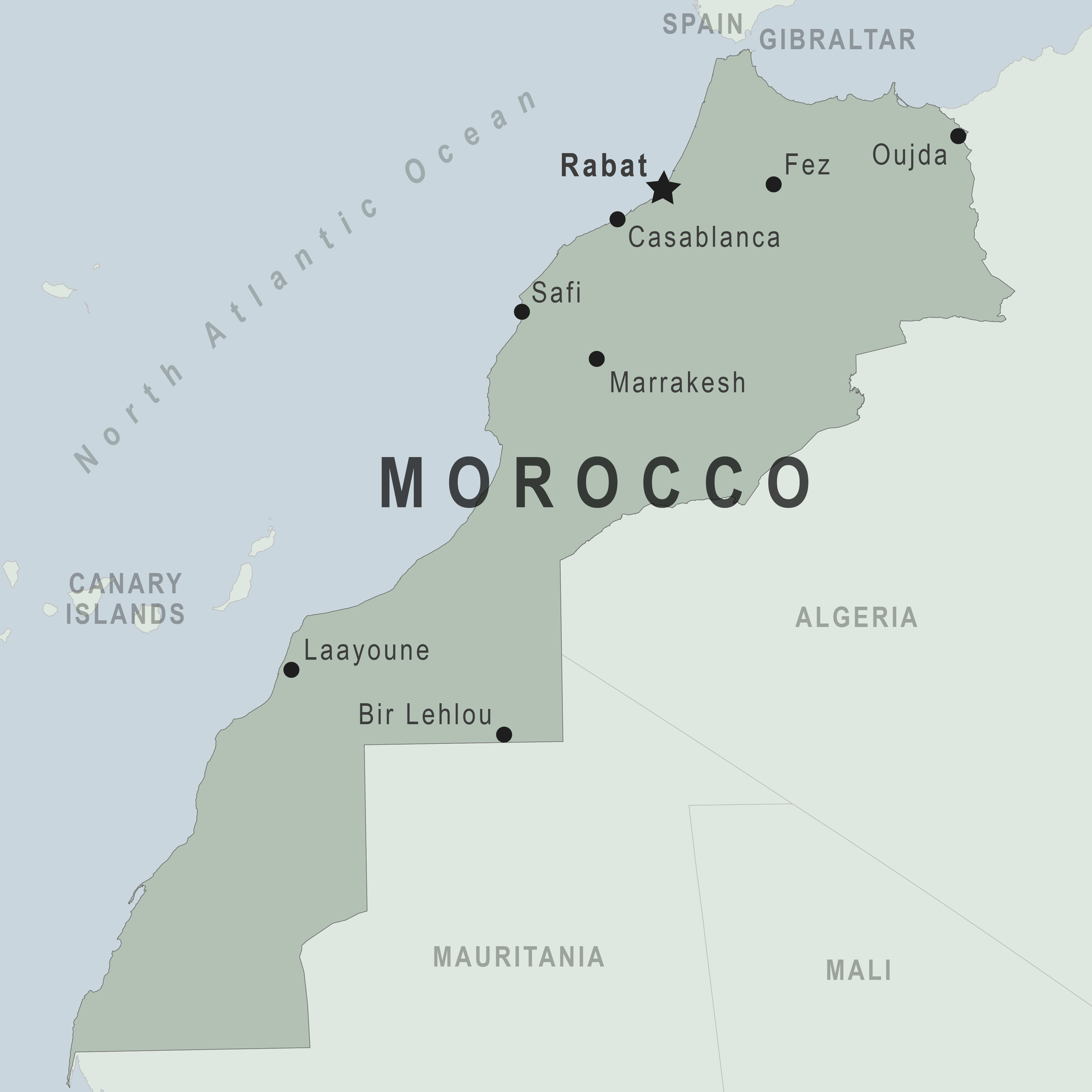
There are no notices currently in effect for Morocco.
⇧ Top
Check the vaccines and medicines list and visit your doctor at least a month before your trip to get vaccines or medicines you may need. If you or your doctor need help finding a location that provides certain vaccines or medicines, visit the Find a Clinic page.
Routine vaccines
Recommendations.
Make sure you are up-to-date on all routine vaccines before every trip. Some of these vaccines include
- Chickenpox (Varicella)
- Diphtheria-Tetanus-Pertussis
- Flu (influenza)
- Measles-Mumps-Rubella (MMR)
Immunization schedules
All eligible travelers should be up to date with their COVID-19 vaccines. Please see Your COVID-19 Vaccination for more information.
COVID-19 vaccine
Hepatitis A
Recommended for unvaccinated travelers one year old or older going to Morocco.
Infants 6 to 11 months old should also be vaccinated against Hepatitis A. The dose does not count toward the routine 2-dose series.
Travelers allergic to a vaccine component or who are younger than 6 months should receive a single dose of immune globulin, which provides effective protection for up to 2 months depending on dosage given.
Unvaccinated travelers who are over 40 years old, immunocompromised, or have chronic medical conditions planning to depart to a risk area in less than 2 weeks should get the initial dose of vaccine and at the same appointment receive immune globulin.
Hepatitis A - CDC Yellow Book
Dosing info - Hep A
Hepatitis B
Recommended for unvaccinated travelers younger than 60 years old traveling to Morocco. Unvaccinated travelers 60 years and older may get vaccinated before traveling to Morocco.
Hepatitis B - CDC Yellow Book
Dosing info - Hep B
Cases of measles are on the rise worldwide. Travelers are at risk of measles if they have not been fully vaccinated at least two weeks prior to departure, or have not had measles in the past, and travel internationally to areas where measles is spreading.
All international travelers should be fully vaccinated against measles with the measles-mumps-rubella (MMR) vaccine, including an early dose for infants 6–11 months, according to CDC’s measles vaccination recommendations for international travel .
Measles (Rubeola) - CDC Yellow Book
Rabid dogs are commonly found in Morocco. However, if you are bitten or scratched by a dog or other mammal while in Morocco, rabies treatment is often available.
Consider rabies vaccination before your trip if your activities mean you will be around dogs or wildlife.
Travelers more likely to encounter rabid animals include
- Campers, adventure travelers, or cave explorers (spelunkers)
- Veterinarians, animal handlers, field biologists, or laboratory workers handling animal specimens
- Visitors to rural areas
Since children are more likely to be bitten or scratched by a dog or other animals, consider rabies vaccination for children traveling to Morocco.
Rabies - CDC Yellow Book
Recommended for most travelers, especially those staying with friends or relatives or visiting smaller cities or rural areas.
Typhoid - CDC Yellow Book
Dosing info - Typhoid
- Avoid contaminated water
Leptospirosis
How most people get sick (most common modes of transmission)
- Touching urine or other body fluids from an animal infected with leptospirosis
- Swimming or wading in urine-contaminated fresh water, or contact with urine-contaminated mud
- Drinking water or eating food contaminated with animal urine
- Avoid contaminated water and soil
Clinical Guidance
Schistosomiasis
- Wading, swimming, bathing, or washing in contaminated freshwater streams, rivers, ponds, lakes, or untreated pools.
Avoid bug bites
Leishmaniasis
- Sand fly bite
- Avoid Bug Bites
Airborne & droplet
- Breathing in air or accidentally eating food contaminated with the urine, droppings, or saliva of infected rodents
- Bite from an infected rodent
- Less commonly, being around someone sick with hantavirus (only occurs with Andes virus)
- Avoid rodents and areas where they live
- Avoid sick people
Tuberculosis (TB)
- Breathe in TB bacteria that is in the air from an infected and contagious person coughing, speaking, or singing.
Learn actions you can take to stay healthy and safe on your trip. Vaccines cannot protect you from many diseases in Morocco, so your behaviors are important.
Eat and drink safely
Food and water standards around the world vary based on the destination. Standards may also differ within a country and risk may change depending on activity type (e.g., hiking versus business trip). You can learn more about safe food and drink choices when traveling by accessing the resources below.
- Choose Safe Food and Drinks When Traveling
- Water Treatment Options When Hiking, Camping or Traveling
- Global Water, Sanitation and Hygiene | Healthy Water
- Avoid Contaminated Water During Travel
You can also visit the Department of State Country Information Pages for additional information about food and water safety.
Prevent bug bites
Bugs (like mosquitoes, ticks, and fleas) can spread a number of diseases in Morocco. Many of these diseases cannot be prevented with a vaccine or medicine. You can reduce your risk by taking steps to prevent bug bites.
What can I do to prevent bug bites?
- Cover exposed skin by wearing long-sleeved shirts, long pants, and hats.
- Use an appropriate insect repellent (see below).
- Use permethrin-treated clothing and gear (such as boots, pants, socks, and tents). Do not use permethrin directly on skin.
- Stay and sleep in air-conditioned or screened rooms.
- Use a bed net if the area where you are sleeping is exposed to the outdoors.
What type of insect repellent should I use?
- FOR PROTECTION AGAINST TICKS AND MOSQUITOES: Use a repellent that contains 20% or more DEET for protection that lasts up to several hours.
- Picaridin (also known as KBR 3023, Bayrepel, and icaridin)
- Oil of lemon eucalyptus (OLE) or para-menthane-diol (PMD)
- 2-undecanone
- Always use insect repellent as directed.
What should I do if I am bitten by bugs?
- Avoid scratching bug bites, and apply hydrocortisone cream or calamine lotion to reduce the itching.
- Check your entire body for ticks after outdoor activity. Be sure to remove ticks properly.
What can I do to avoid bed bugs?
Although bed bugs do not carry disease, they are an annoyance. See our information page about avoiding bug bites for some easy tips to avoid them. For more information on bed bugs, see Bed Bugs .
For more detailed information on avoiding bug bites, see Avoid Bug Bites .
Stay safe outdoors
If your travel plans in Morocco include outdoor activities, take these steps to stay safe and healthy during your trip.
- Stay alert to changing weather conditions and adjust your plans if conditions become unsafe.
- Prepare for activities by wearing the right clothes and packing protective items, such as bug spray, sunscreen, and a basic first aid kit.
- Consider learning basic first aid and CPR before travel. Bring a travel health kit with items appropriate for your activities.
- If you are outside for many hours in heat, eat salty snacks and drink water to stay hydrated and replace salt lost through sweating.
- Protect yourself from UV radiation : use sunscreen with an SPF of at least 15, wear protective clothing, and seek shade during the hottest time of day (10 a.m.–4 p.m.).
- Be especially careful during summer months and at high elevation. Because sunlight reflects off snow, sand, and water, sun exposure may be increased during activities like skiing, swimming, and sailing.
- Very cold temperatures can be dangerous. Dress in layers and cover heads, hands, and feet properly if you are visiting a cold location.
Stay safe around water
- Swim only in designated swimming areas. Obey lifeguards and warning flags on beaches.
- Practice safe boating—follow all boating safety laws, do not drink alcohol if driving a boat, and always wear a life jacket.
- Do not dive into shallow water.
- Do not swim in freshwater in developing areas or where sanitation is poor.
- Avoid swallowing water when swimming. Untreated water can carry germs that make you sick.
- To prevent infections, wear shoes on beaches where there may be animal waste.
Schistosomiasis, a parasitic infection that can be spread in fresh water, is found in Morocco. Avoid swimming in fresh, unchlorinated water, such as lakes, ponds, or rivers.
Keep away from animals
Most animals avoid people, but they may attack if they feel threatened, are protecting their young or territory, or if they are injured or ill. Animal bites and scratches can lead to serious diseases such as rabies.
Follow these tips to protect yourself:
- Do not touch or feed any animals you do not know.
- Do not allow animals to lick open wounds, and do not get animal saliva in your eyes or mouth.
- Avoid rodents and their urine and feces.
- Traveling pets should be supervised closely and not allowed to come in contact with local animals.
- If you wake in a room with a bat, seek medical care immediately. Bat bites may be hard to see.
All animals can pose a threat, but be extra careful around dogs, bats, monkeys, sea animals such as jellyfish, and snakes. If you are bitten or scratched by an animal, immediately:
- Wash the wound with soap and clean water.
- Go to a doctor right away.
- Tell your doctor about your injury when you get back to the United States.
Consider buying medical evacuation insurance. Rabies is a deadly disease that must be treated quickly, and treatment may not be available in some countries.
Reduce your exposure to germs
Follow these tips to avoid getting sick or spreading illness to others while traveling:
- Wash your hands often, especially before eating.
- If soap and water aren’t available, clean hands with hand sanitizer (containing at least 60% alcohol).
- Don’t touch your eyes, nose, or mouth. If you need to touch your face, make sure your hands are clean.
- Cover your mouth and nose with a tissue or your sleeve (not your hands) when coughing or sneezing.
- Try to avoid contact with people who are sick.
- If you are sick, stay home or in your hotel room, unless you need medical care.
Avoid sharing body fluids
Diseases can be spread through body fluids, such as saliva, blood, vomit, and semen.
Protect yourself:
- Use latex condoms correctly.
- Do not inject drugs.
- Limit alcohol consumption. People take more risks when intoxicated.
- Do not share needles or any devices that can break the skin. That includes needles for tattoos, piercings, and acupuncture.
- If you receive medical or dental care, make sure the equipment is disinfected or sanitized.
Know how to get medical care while traveling
Plan for how you will get health care during your trip, should the need arise:
- Carry a list of local doctors and hospitals at your destination.
- Review your health insurance plan to determine what medical services it would cover during your trip. Consider purchasing travel health and medical evacuation insurance.
- Carry a card that identifies, in the local language, your blood type, chronic conditions or serious allergies, and the generic names of any medications you take.
- Some prescription drugs may be illegal in other countries. Call Morocco’s embassy to verify that all of your prescription(s) are legal to bring with you.
- Bring all the medicines (including over-the-counter medicines) you think you might need during your trip, including extra in case of travel delays. Ask your doctor to help you get prescriptions filled early if you need to.
Many foreign hospitals and clinics are accredited by the Joint Commission International. A list of accredited facilities is available at their website ( www.jointcommissioninternational.org ).
In some countries, medicine (prescription and over-the-counter) may be substandard or counterfeit. Bring the medicines you will need from the United States to avoid having to buy them at your destination.
Select safe transportation
Motor vehicle crashes are the #1 killer of healthy US citizens in foreign countries.
In many places cars, buses, large trucks, rickshaws, bikes, people on foot, and even animals share the same lanes of traffic, increasing the risk for crashes.
Be smart when you are traveling on foot.
- Use sidewalks and marked crosswalks.
- Pay attention to the traffic around you, especially in crowded areas.
- Remember, people on foot do not always have the right of way in other countries.
Riding/Driving
Choose a safe vehicle.
- Choose official taxis or public transportation, such as trains and buses.
- Ride only in cars that have seatbelts.
- Avoid overcrowded, overloaded, top-heavy buses and minivans.
- Avoid riding on motorcycles or motorbikes, especially motorbike taxis. (Many crashes are caused by inexperienced motorbike drivers.)
- Choose newer vehicles—they may have more safety features, such as airbags, and be more reliable.
- Choose larger vehicles, which may provide more protection in crashes.
Think about the driver.
- Do not drive after drinking alcohol or ride with someone who has been drinking.
- Consider hiring a licensed, trained driver familiar with the area.
- Arrange payment before departing.
Follow basic safety tips.
- Wear a seatbelt at all times.
- Sit in the back seat of cars and taxis.
- When on motorbikes or bicycles, always wear a helmet. (Bring a helmet from home, if needed.)
- Avoid driving at night; street lighting in certain parts of Morocco may be poor.
- Do not use a cell phone or text while driving (illegal in many countries).
- Travel during daylight hours only, especially in rural areas.
- If you choose to drive a vehicle in Morocco, learn the local traffic laws and have the proper paperwork.
- Get any driving permits and insurance you may need. Get an International Driving Permit (IDP). Carry the IDP and a US-issued driver's license at all times.
- Check with your auto insurance policy's international coverage, and get more coverage if needed. Make sure you have liability insurance.
- Avoid using local, unscheduled aircraft.
- If possible, fly on larger planes (more than 30 seats); larger airplanes are more likely to have regular safety inspections.
- Try to schedule flights during daylight hours and in good weather.
Medical Evacuation Insurance
If you are seriously injured, emergency care may not be available or may not meet US standards. Trauma care centers are uncommon outside urban areas. Having medical evacuation insurance can be helpful for these reasons.
Helpful Resources
Road Safety Overseas (Information from the US Department of State): Includes tips on driving in other countries, International Driving Permits, auto insurance, and other resources.
The Association for International Road Travel has country-specific Road Travel Reports available for most countries for a minimal fee.
Maintain personal security
Use the same common sense traveling overseas that you would at home, and always stay alert and aware of your surroundings.
Before you leave
- Research your destination(s), including local laws, customs, and culture.
- Monitor travel advisories and alerts and read travel tips from the US Department of State.
- Enroll in the Smart Traveler Enrollment Program (STEP) .
- Leave a copy of your itinerary, contact information, credit cards, and passport with someone at home.
- Pack as light as possible, and leave at home any item you could not replace.
While at your destination(s)
- Carry contact information for the nearest US embassy or consulate .
- Carry a photocopy of your passport and entry stamp; leave the actual passport securely in your hotel.
- Follow all local laws and social customs.
- Do not wear expensive clothing or jewelry.
- Always keep hotel doors locked, and store valuables in secure areas.
- If possible, choose hotel rooms between the 2nd and 6th floors.
Healthy Travel Packing List
Use the Healthy Travel Packing List for Morocco for a list of health-related items to consider packing for your trip. Talk to your doctor about which items are most important for you.
Why does CDC recommend packing these health-related items?
It’s best to be prepared to prevent and treat common illnesses and injuries. Some supplies and medicines may be difficult to find at your destination, may have different names, or may have different ingredients than what you normally use.
If you are not feeling well after your trip, you may need to see a doctor. If you need help finding a travel medicine specialist, see Find a Clinic . Be sure to tell your doctor about your travel, including where you went and what you did on your trip. Also tell your doctor if you were bitten or scratched by an animal while traveling.
For more information on what to do if you are sick after your trip, see Getting Sick after Travel .
Map Disclaimer - The boundaries and names shown and the designations used on maps do not imply the expression of any opinion whatsoever on the part of the Centers for Disease Control and Prevention concerning the legal status of any country, territory, city or area or of its authorities, or concerning the delimitation of its frontiers or boundaries. Approximate border lines for which there may not yet be full agreement are generally marked.
Other Destinations
If you need help finding travel information:
Message & data rates may apply. CDC Privacy Policy
File Formats Help:
- Adobe PDF file
- Microsoft PowerPoint file
- Microsoft Word file
- Microsoft Excel file
- Audio/Video file
- Apple Quicktime file
- RealPlayer file
- Zip Archive file
Exit Notification / Disclaimer Policy
- The Centers for Disease Control and Prevention (CDC) cannot attest to the accuracy of a non-federal website.
- Linking to a non-federal website does not constitute an endorsement by CDC or any of its employees of the sponsors or the information and products presented on the website.
- You will be subject to the destination website's privacy policy when you follow the link.
- CDC is not responsible for Section 508 compliance (accessibility) on other federal or private website.
We’re sorry, this site is currently experiencing technical difficulties. Please try again in a few moments. Exception: request blocked
- Skip to main content
- Skip to "About this site"
Language selection
Search travel.gc.ca.
Help us to improve our website. Take our survey !
COVID-19: travel health notice for all travellers
Morocco travel advice
Latest updates: The Need help? section was updated.
Last updated: April 5, 2024 07:32 ET
On this page
Safety and security, entry and exit requirements, laws and culture, natural disasters and climate, morocco - exercise a high degree of caution.
Exercise a high degree of caution in Morocco due to the threat of terrorism.

Border regions of Western Sahara - Avoid all travel
- within 30 km west of the Berm, Morocco’s militarized boundary in the Western Sahara
- between the Berm and neighbouring countries on the eastern and southern sides
Back to top
Protests related to the situation in Israel, the West Bank and the Gaza Strip
Since October 13, 2023, protests have been taking place in Rabat, Casablanca and other cities near government buildings. The current protests are related to the ongoing situation in Israel, the West Bank and the Gaza Strip.
Additional protests are expected in Rabat, Casablanca, Marrakesh, Fez, Tangier and several other cities across the country.
Moroccan authorities may employ enhanced measures to respond to demonstrations, including:
- deploying additional security forces
- using crowd dispersal methods
If you are near an affected area:
- exercise caution
- expect heightened security measures
- avoid all demonstrations and gatherings
- follow the instructions of local authorities
Border regions
The berm (border regions of western sahara).
A militarized boundary, known as the Berm, separates the Moroccan-controlled part of Western Sahara from the rest of the Saharan territory, which borders Algeria and Mauritania. There are fatalities involving unexploded ordnance in this zone each year.
Border with Algeria
Morocco’s border with Algeria is closed. Don’t attempt to cross into Algeria by land or water. Avoid boating close to the maritime border in order not to cross it.
Western Sahara
Western Sahara is a non-autonomous territory whose political and legal status has yet to be determined through the United Nations. It’s a former area of conflict that’s still littered with unexploded landmines, particularly in remote regions and the militarized zone.
We may be extremely limited in our ability to provide assistance to Canadians in Western Sahara.
Travel in remote areas
When you travel to a remote area:
- restrict travel to officially designated tourist areas
- seek local, official tourist advice prior to travelling to the desert areas in the south
- hire only official guides recommended by hotels, travel agencies or local tourist authorities
- use only a four-wheel-drive vehicle for off-road driving in the mountains or desert
- ensure that your vehicle is properly equipped and has appropriate supplies and essentials, including potable water
There’s a threat of terrorism, and attacks have targeted foreigners. In December 2018, 2 Scandinavian tourists were found dead in a mountainous area of southern Morocco, 10 km from Imlil, a village in the High Atlas. Moroccan authorities have described the killing as a terrorist act. Terrorist attacks could occur at any time.
Targets could include:
- government buildings, including schools
- places of worship
- airports and other transportation hubs and networks
- public areas such as tourist attractions, restaurants, bars, coffee shops, shopping centres, markets, hotels (specifically coastal beach resorts), and other sites frequented by foreigners
For your safety:
- always be aware of your surroundings when in public places
- stay at hotels that have robust security measures; keep in mind, however, that even the most secure locations can’t be considered completely free of risk
There’s a threat of kidnapping against Westerners in remote regions of Morocco and in areas bordering Algeria and Mauritania.
- Maintain a high level of vigilance at all times, especially when travelling in the southern and border areas of Morocco
- Don’t hike alone in remote mountain regions
Demonstrations
Demonstrations take place from time to time, most often in Rabat. Even peaceful demonstrations can turn violent at any time. They can also lead to disruptions to traffic and public transportation.
- Avoid areas where demonstrations and large gatherings are taking place
- Follow the instructions of local authorities
- Monitor local media for information on ongoing demonstrations
Mass gatherings (large-scale events)
Petty crime
Petty crimes notably pickpocketing, purse snatchings (sometimes by motorcyclists), scams and other thefts take place, most frequently in medinas, market areas, parks and on beaches but can also occur in all types of neighbourhoods.
To limit your risks:
- stay on major roads, especially when in the medinas, and exercise caution
- ensure that your personal belongings are secure
- don’t show signs of affluence, particularly when walking at night
- avoid carrying a purse
- don’t accept food, drinks or invitations from strangers, or change your planned itinerary at their request
- exercise caution in the mountainous Rif region, on the northern coast of Morocco. Drugs are produced in this area and tourists are occasionally tricked into unknowingly committing drug offences
While Moroccans are generally very friendly and hospitable, you should always exercise common sense and travel wisely.
Armed robbery
Armed robberies with knives have occurred and have resulted in injuries and in some cases, deaths. Don’t resist robbers.
Thefts occur around ATMs.
Credit card fraud
Credit card fraud is also frequent.
Forced purchases
Tourists have been forcibly taken to stores and intimidated into making purchases.
Women’s safety
Women travelling alone may be subject to certain forms of harassment and verbal abuse.
Advice for women travellers
Road safety
Road conditions and road safety vary greatly throughout the country, depending on location and weather (for example, in the mountains or during the rainy season).
- Avoid driving at night
- Have an accident report form (constat à l’amiable), which can be purchased at newsstands, in your vehicle at all times.
Not all drivers respect traffic regulations. Pedestrians, scooters and animals on roadways can also pose risks.
National roads
National roads are generally in good condition but are narrow and heavily congested.
Driving is generally easier on the highways.
Be extremely careful when driving on the Rabat-Casablanca highway and on certain national highways because of high traffic volume.
Accidents causing fatalities are common.
If an accident occurs and only involves material damage, the police won’t usually intervene. The parties involved should complete an accident report (joint report), which can be purchased at newsstands. If the accident involves casualties, avoid moving the vehicles before the police arrive.
Checkpoints
Checkpoints are frequent. Carry your identification and vehicle documents at all times.
We do not make assessments on the compliance of foreign domestic airlines with international safety standards.
Information about foreign domestic airlines
Internet romances
Exercise caution if travelling to Morocco for romance, especially in cases of relationships initiated on the Internet.
Find out beforehand about the country’s customs and laws on conjugal relations and marriage.
Ensure that you retain possession of your return plane ticket, your money and your passport in case problems arise.
Useful links
- Marriage abroad
- Overseas fraud
Public beaches
While swimming conditions in tourist areas are generally safe and problem-free, public beaches in major cities are often polluted and unfit for swimming.
Swimming at some beaches on the Atlantic coast is dangerous due to strong currents and tides. Only swim at designated beaches and exercise caution.
Fondation Mohammed VI pour la protection de l’environnement - a list of beaches that meet international standards
Women and girls can be the subject of harassment when wearing swimsuits. Exercise caution and opt for tourist beaches rather than the public ones.
Every country or territory decides who can enter or exit through its borders. The Government of Canada cannot intervene on your behalf if you do not meet your destination’s entry or exit requirements.
We have obtained the information on this page from the Moroccan authorities. It can, however, change at any time.
Verify this information with the Foreign Representatives in Canada .
Entry requirements vary depending on the type of passport you use for travel.
Before you travel, check with your transportation company about passport requirements. Its rules on passport validity may be more stringent than the country’s entry rules.
Regular Canadian passport
Your passport must be valid for at least 6 months beyond the date you expect to leave Morocco.
Passport for official travel
Different entry rules may apply.
Official travel
Passport with “X” gender identifier
While the Government of Canada issues passports with an “X” gender identifier, it cannot guarantee your entry or transit through other countries. You might face entry restrictions in countries that do not recognize the “X” gender identifier. Before you leave, check with the closest foreign representative for your destination.
Other travel documents
Different entry rules may apply when travelling with a temporary passport or an emergency travel document. Before you leave, check with the closest foreign representative for your destination.
- Foreign Representatives in Canada
- Canadian passports
Tourist visa: not required for stays of less than 90 days Business visa: not required for stays of less than 90 days Student visa: not required for stays of less than 90 days
Extending your stay beyond 90 days
You must secure proper authorization if you plan to extend your stay in Morocco beyond 90 days. Contact the Service to Foreigners Section (Section du service aux étrangers) at the local police station at least 15 days prior to the expiry of the 90-day limit.
If you remain in Morocco beyond the 90-day limit, you’ll be forced to remain there until seen by a prosecutor and fined.
Entering by private boat
To enter Morocco by private boat, you must do so at a recognized port of entry.
Entering with a private vehicle
If you enter Morocco with a vehicle, you must exit with it or you will be denied exit.
Yellow fever
Learn about potential entry requirements related to yellow fever (vaccines section).
Children and travel
Learn more about travelling with children .
Relevant Travel Health Notices
- Global Measles Notice - 13 March, 2024
- COVID-19 and International Travel - 13 March, 2024
This section contains information on possible health risks and restrictions regularly found or ongoing in the destination. Follow this advice to lower your risk of becoming ill while travelling. Not all risks are listed below.
Consult a health care professional or visit a travel health clinic preferably 6 weeks before you travel to get personalized health advice and recommendations.
Routine vaccines
Be sure that your routine vaccinations , as per your province or territory , are up-to-date before travelling, regardless of your destination.
Some of these vaccinations include measles-mumps-rubella (MMR), diphtheria, tetanus, pertussis, polio, varicella (chickenpox), influenza and others.
Pre-travel vaccines and medications
You may be at risk for preventable diseases while travelling in this destination. Talk to a travel health professional about which medications or vaccines may be right for you, based on your destination and itinerary.
Yellow fever is a disease caused by a flavivirus from the bite of an infected mosquito.
Travellers get vaccinated either because it is required to enter a country or because it is recommended for their protection.
- There is no risk of yellow fever in this country.
Country Entry Requirement*
- Proof of vaccination is not required to enter this country.
Recommendation
- Vaccination is not recommended.
* It is important to note that country entry requirements may not reflect your risk of yellow fever at your destination. It is recommended that you contact the nearest diplomatic or consular office of the destination(s) you will be visiting to verify any additional entry requirements.
About Yellow Fever
Yellow Fever Vaccination Centres in Canada
There is a risk of hepatitis A in this destination. It is a disease of the liver. People can get hepatitis A if they ingest contaminated food or water, eat foods prepared by an infectious person, or if they have close physical contact (such as oral-anal sex) with an infectious person, although casual contact among people does not spread the virus.
Practise safe food and water precautions and wash your hands often. Vaccination is recommended for all travellers to areas where hepatitis A is present.
Measles is a highly contagious viral disease. It can spread quickly from person to person by direct contact and through droplets in the air.
Anyone who is not protected against measles is at risk of being infected with it when travelling internationally.
Regardless of where you are going, talk to a health care professional before travelling to make sure you are fully protected against measles.
Hepatitis B is a risk in every destination. It is a viral liver disease that is easily transmitted from one person to another through exposure to blood and body fluids containing the hepatitis B virus. Travellers who may be exposed to blood or other bodily fluids (e.g., through sexual contact, medical treatment, sharing needles, tattooing, acupuncture or occupational exposure) are at higher risk of getting hepatitis B.
Hepatitis B vaccination is recommended for all travellers. Prevent hepatitis B infection by practicing safe sex, only using new and sterile drug equipment, and only getting tattoos and piercings in settings that follow public health regulations and standards.
Coronavirus disease (COVID-19) is an infectious viral disease. It can spread from person to person by direct contact and through droplets in the air.
It is recommended that all eligible travellers complete a COVID-19 vaccine series along with any additional recommended doses in Canada before travelling. Evidence shows that vaccines are very effective at preventing severe illness, hospitalization and death from COVID-19. While vaccination provides better protection against serious illness, you may still be at risk of infection from the virus that causes COVID-19. Anyone who has not completed a vaccine series is at increased risk of being infected with the virus that causes COVID-19 and is at greater risk for severe disease when travelling internationally.
Before travelling, verify your destination’s COVID-19 vaccination entry/exit requirements. Regardless of where you are going, talk to a health care professional before travelling to make sure you are adequately protected against COVID-19.
The best way to protect yourself from seasonal influenza (flu) is to get vaccinated every year. Get the flu shot at least 2 weeks before travelling.
The flu occurs worldwide.
- In the Northern Hemisphere, the flu season usually runs from November to April.
- In the Southern Hemisphere, the flu season usually runs between April and October.
- In the tropics, there is flu activity year round.
The flu vaccine available in one hemisphere may only offer partial protection against the flu in the other hemisphere.
The flu virus spreads from person to person when they cough or sneeze or by touching objects and surfaces that have been contaminated with the virus. Clean your hands often and wear a mask if you have a fever or respiratory symptoms.
In this destination, rabies is carried by dogs and some wildlife, including bats. Rabies is a deadly disease that spreads to humans primarily through bites or scratches from an infected animal. While travelling, take precautions , including keeping your distance from animals (including free-roaming dogs), and closely supervising children.
If you are bitten or scratched by an animal while travelling, immediately wash the wound with soap and clean water and see a health care professional. Rabies treatment is often available in this destination.
Before travel, discuss rabies vaccination with a health care professional. It may be recommended for travellers who are at high risk of exposure (e.g., occupational risk such as veterinarians and wildlife workers, children, adventure travellers and spelunkers, and others in close contact with animals).
Safe food and water precautions
Many illnesses can be caused by eating food or drinking beverages contaminated by bacteria, parasites, toxins, or viruses, or by swimming or bathing in contaminated water.
- Learn more about food and water precautions to take to avoid getting sick by visiting our eat and drink safely abroad page. Remember: Boil it, cook it, peel it, or leave it!
- Avoid getting water into your eyes, mouth or nose when swimming or participating in activities in freshwater (streams, canals, lakes), particularly after flooding or heavy rain. Water may look clean but could still be polluted or contaminated.
- Avoid inhaling or swallowing water while bathing, showering, or swimming in pools or hot tubs.
Travellers' diarrhea is the most common illness affecting travellers. It is spread from eating or drinking contaminated food or water.
Risk of developing travellers' diarrhea increases when travelling in regions with poor standards of hygiene and sanitation. Practise safe food and water precautions.
The most important treatment for travellers' diarrhea is rehydration (drinking lots of fluids). Carry oral rehydration salts when travelling.
Typhoid is a bacterial infection spread by contaminated food or water. Risk is higher among children, travellers going to rural areas, travellers visiting friends and relatives or those travelling for a long period of time.
Travellers visiting regions with a risk of typhoid, especially those exposed to places with poor sanitation, should speak to a health care professional about vaccination.
Insect bite prevention
Many diseases are spread by the bites of infected insects such as mosquitoes, ticks, fleas or flies. When travelling to areas where infected insects may be present:
- Use insect repellent (bug spray) on exposed skin
- Cover up with light-coloured, loose clothes made of tightly woven materials such as nylon or polyester
- Minimize exposure to insects
- Use mosquito netting when sleeping outdoors or in buildings that are not fully enclosed
To learn more about how you can reduce your risk of infection and disease caused by bites, both at home and abroad, visit our insect bite prevention page.
Find out what types of insects are present where you’re travelling, when they’re most active, and the symptoms of the diseases they spread.
Animal precautions
Some infections, such as rabies and influenza, can be shared between humans and animals. Certain types of activities may increase your chance of contact with animals, such as travelling in rural or forested areas, camping, hiking, and visiting wet markets (places where live animals are slaughtered and sold) or caves.
Travellers are cautioned to avoid contact with animals, including dogs, livestock (pigs, cows), monkeys, snakes, rodents, birds, and bats, and to avoid eating undercooked wild game.
Closely supervise children, as they are more likely to come in contact with animals.
Person-to-person infections
Stay home if you’re sick and practise proper cough and sneeze etiquette , which includes coughing or sneezing into a tissue or the bend of your arm, not your hand. Reduce your risk of colds, the flu and other illnesses by:
- washing your hands often
- avoiding or limiting the amount of time spent in closed spaces, crowded places, or at large-scale events (concerts, sporting events, rallies)
- avoiding close physical contact with people who may be showing symptoms of illness
Sexually transmitted infections (STIs) , HIV , and mpox are spread through blood and bodily fluids; use condoms, practise safe sex, and limit your number of sexual partners. Check with your local public health authority pre-travel to determine your eligibility for mpox vaccine.
Tuberculosis is an infection caused by bacteria and usually affects the lungs.
For most travellers the risk of tuberculosis is low.
Travellers who may be at high risk while travelling in regions with risk of tuberculosis should discuss pre- and post-travel options with a health care professional.
High-risk travellers include those visiting or working in prisons, refugee camps, homeless shelters, or hospitals, or travellers visiting friends and relatives.
Medical services and facilities
The quality of medical care varies greatly throughout the country. Casablanca, Marrakesh and Rabat have good, private medical facilities for non-emergencies. Care in public health facilities is not up to Canadian standards.
Doctors and hospitals often expect immediate cash payment.
Make sure you get travel insurance that includes coverage for medical evacuation and hospital stays.
Travel health and safety
Keep in Mind...
The decision to travel is the sole responsibility of the traveller. The traveller is also responsible for his or her own personal safety.
Be prepared. Do not expect medical services to be the same as in Canada. Pack a travel health kit , especially if you will be travelling away from major city centres.
You must abide by local laws.
Learn about what you should do and how we can help if you are arrested or detained abroad .
Penalties for possession, use or trafficking of illegal drugs are strict, and judgment is expeditious.
Alcohol consumption outside of licensed bars, hotels and restaurants is prohibited. Offenders may be punished by detention or other penalties. Alcohol can also be purchased from licensed stores for private consumption.
Drugs, alcohol and travel
Non-Islamic religious materials
Unauthorized importation of bibles or other non-Islamic religious material is prohibited, except for personal use. Religious preaching is forbidden.
Mailing identity papers
Sending identity papers, such as passports, by mail is forbidden in Morocco and authorities may confiscate them.
Extramarital sexual relations
Extramarital sexual relations are illegal. Hotels may refuse to allow couples to stay in the same room, if they’re unable to prove that they’re married. Foreigners, however, are almost always exempt from having to provide proof.
Pornography
Possession of pornographic material is illegal.
Photography
Don’t take photographs of military or security installations.
Drones and surveillance equipment
Drones and surveillance equipment are prohibited and will be confiscated by the authorities upon entry.
The Moroccan constitution states that the person of the King is inviolable and respect is due to him. It is expected that people avoid any criticism of the monarchy.
2SLGBTQI+ travellers
The laws of Morocco prohibit sexual acts between individuals of the same sex.
2SLGBTQI+ travellers should carefully consider the risks of travelling to Morocco.
Travel and your sexual orientation, gender identity, gender expression and sex characteristics
Children and citizenship
Children of Moroccan fathers automatically acquire Moroccan citizenship at birth, regardless of where they were born. Children of Moroccan mothers may submit a request for their citizenship.
Under Moroccan law, parents may prevent their children from leaving Morocco.
Entry and exit requirements when travelling with children
Dual citizenship
Dual citizenship is legally recognized in Morocco. According to Moroccan law, however, Moroccan citizenship takes precedence over any other citizenship.
Airport authorities regularly ask dual citizens to produce their Moroccan national identification card.
If you’re a citizen of Canada, but also a citizen of Morocco, our ability to offer you consular services may be limited in Morocco. You may also be subject to different entry/exit requirements.
General information for travellers with dual citizenship
International Child Abduction
The Hague Convention on the Civil Aspects of International Child Abduction is an international treaty. It can help parents with the return of children who have been removed to or retained in certain countries in violation of custody rights. The convention applies between Canada and Morocco.
If your child was wrongfully taken to, or is being held in Morocco, and if the applicable conditions are met, you may apply for the return of your child to the Moroccan court.
If you are in this situation:
- act as quickly as you can
- contact the Central Authority for your province or territory of residence for information on starting an application under The Hague Convention
- consult a lawyer in Canada and in Morocco to explore all the legal options for the return of your child
- report the situation to the nearest Canadian government office abroad or to the Vulnerable Children’s Consular Unit at Global Affairs Canada by calling the Emergency Watch and Response Centre
If your child was removed from a country other than Canada, consult a lawyer to determine if The Hague Convention applies.
Be aware that Canadian consular officials cannot interfere in private legal matters or in another country’s judicial affairs.
- List of Canadian Central Authorities for the Hague Convention
- International Child Abduction: A Guidebook for Left-Behind Parents
- Travelling with children
- The Hague Convention - Hague Conference on Private International Law
- Canadian embassies and consulates by destination
- Emergency Watch and Response Centre
Dress and behaviour
Islamic practices and beliefs are adhered to in Morocco’s customs, laws and regulations. Dress conservatively, behave discreetly and respect religious and social traditions to avoid offending local sensitivities.
Public displays of affection are frowned upon.
In 2024, the lunar month of Ramadan is expected to begin on or around March 10.
In public, between sunrise and sunset, refrain from:
The currency in Morocco is the Moroccan dirham (MAD). The dirham cannot be exchanged outside of the country. Exchange only as much money as needed, as it is illegal to take dirhams out of Morocco.
Unused dirhams can be converted at the airport exchange counter upon departure, with proof of your initial currency purchase.
Credit cards and traveller’s cheques are accepted in certain stores and restaurants in urban centres and in major hotels.
Earthquake in the Marrakesh-Safi region
On September 8, 2023, a 6.8 magnitude earthquake struck near the city of Marrakesh, in the Marrakesh-Safi region. The tremors were felt in several cities across the country.
There was significant damage to infrastructure and many casualties, especially in the villages located in the area of the High Atlas. Emergency services continue to provide assistance to the affected populations and recovery efforts are underway.
If you are in or near the affected areas:
- monitor local media for the latest developments
- check road conditions before travelling
Morocco is located in an active seismic zone.
Rainy season
The rainy season usually extends from November to March, during which flash floods can occur frequently. These can be especially dangerous in the High Atlas valleys.
Monitor regional weather forecasts and plan accordingly
Local services
In case of emergency, dial:
- police: 190
- medical assistance: 150
- firefighters: 150
Consular assistance
For emergency consular assistance, call the Embassy of Canada to Morocco in Rabat and follow the instructions. At any time, you may also contact the Emergency Watch and Response Centre in Ottawa.
The decision to travel is your choice and you are responsible for your personal safety abroad. We take the safety and security of Canadians abroad very seriously and provide credible and timely information in our Travel Advice to enable you to make well-informed decisions regarding your travel abroad.
The content on this page is provided for information only. While we make every effort to give you correct information, it is provided on an "as is" basis without warranty of any kind, expressed or implied. The Government of Canada does not assume responsibility and will not be liable for any damages in connection to the information provided.
If you need consular assistance while abroad, we will make every effort to help you. However, there may be constraints that will limit the ability of the Government of Canada to provide services.
Learn more about consular services .
Risk Levels
take normal security precautions.
Take similar precautions to those you would take in Canada.
Exercise a high degree of caution
There are certain safety and security concerns or the situation could change quickly. Be very cautious at all times, monitor local media and follow the instructions of local authorities.
IMPORTANT: The two levels below are official Government of Canada Travel Advisories and are issued when the safety and security of Canadians travelling or living in the country or region may be at risk.
Avoid non-essential travel
Your safety and security could be at risk. You should think about your need to travel to this country, territory or region based on family or business requirements, knowledge of or familiarity with the region, and other factors. If you are already there, think about whether you really need to be there. If you do not need to be there, you should think about leaving.
Avoid all travel
You should not travel to this country, territory or region. Your personal safety and security are at great risk. If you are already there, you should think about leaving if it is safe to do so.

Search Smartraveller

Latest update
Exercise a high degree of caution in Morocco overall due to the threat of terrorism.

Africa (PDF 1.68 MB)
Local emergency contacts
Fire and rescue services, medical emergencies.
Call 190, or go to the nearest hospital.
Call 190, or visit the nearest police station.
Advice levels
Exercise a high degree of caution in Morocco overall.
Do not travel within 30km of the northern or western side of the Berm (a militarised boundary) or all areas south and east of the Berm.
Do not travel within 30km of the northern or western side of the Berm (a militarised boundary) or all areas south and east of the Berm because of the risk of armed conflict. Western Sahara's status as part of Morocco is disputed. An active, militarised independence movement known as the Polisario operates to the east of the Berm.
See Safety
- Terrorism is a risk in Morocco. Tourist areas and public places are possible targets. Be alert to possible threats. Avoid known targets. The risk increases in remote mountain areas, the south and border areas.
- There is currently an increased risk of demonstrations and protests occurring around the country linked to the situation in Israel and the Occupied Palestinian Territories. There's an increased threat of attacks against Israel and Israeli interests. Follow the advice from local authorities and monitor media for any updates.
- Large public gatherings and protests can turn violent. Avoid demonstrations. Take care on weekends and around Friday prayers.
- Foreigners are at high risk of serious crime across North Africa. This risk increases in remote areas. Don't hike alone in mountainous or isolated areas. Get professional security advice before travelling to border areas.
- Petty crime, such as pickpocketing and bag snatching, is common. Tourists have been mugged when walking at night. Keep your belongings close. Don't walk in isolated areas or along dark streets at night.
- You may face aggressive begging and harassment, particularly near ATMs. Female travellers may be sexually harassed. Take care when using ATMs. Avoid walking or travelling alone.
- Scams and fraud are common. These include double-charging credit cards and replacing your purchased goods with lower-quality ones. Australians have fallen victim to fake internet friendship, dating and marriage schemes in Morocco.
Full travel advice: Safety
- Common insect-borne diseases include leishmaniasis and typhus. Malaria is less common. Use insect repellent. Ensure your accommodation is insect-proof.
- Waterborne, foodborne and other infectious diseases are common. Boil drinking water or drink bottled water. Avoid raw or undercooked food.
- Avoid black henna temporary tattoos. These often contain a dye that can irritate the skin.
Full travel advice: Health
- Morocco has the death penalty for serious crimes, including high treason, terrorism, multiple murder and rape.
- Sexual acts between members of the same sex, or outside marriage, are illegal. Possessing pornographic material is also illegal.
- Understand and follow local laws. Morocco has strict laws around religion, the monarchy, alcohol, drug use, photography, pornography and drone use.
- Morocco recognises dual nationality, but Moroccan citizenship takes precedence. This can affect child custody disputes and military service requirements. Always travel on your Australian passport.
- Moroccan society is conservative. Avoid public displays of affection. In some parts of Morocco, you should wear loose fitting clothes that covers arms and legs.
Full travel advice: Local laws
- You don't need a visa if you're travelling to Morocco for less than 3 months. Entry and exit conditions can change at short notice. You should contact your nearest Moroccan Embassy for the latest information.
- In September 2023, an earthquake of magnitude 6.8 struck Morocco southwest of Marrakesh. Recovery and reconstruction efforts are continuing. Avoid travelling to impacted areas and follow the instructions from local authorities. Contact your travel provider for the latest updates.
Full travel advice: Travel
Local contacts
- The Consular Services Charter details what the Australian Government can and can't do to help you overseas.
- For consular assistance and notarial services, contact the Australian Embassy in Rabat . You need to make an appointment for passport services. Book these online through the embassy website.
- The Australian Embassy in Rabat can issue Emergency Passports.
- To stay up to date with local information, follow the Embassy’s social media accounts.
Full travel advice: Local contacts
Full advice
Terror attacks are a risk in Morocco.
Past attacks targeted locations that are popular with tourists.
Terrorists murdered two foreign nationals in December 2018. They were hiking in a remote mountain area near Mount Toubkal.
You could get caught up in attacks directed at others.
Various terror groups target the Maghreb region for attacks. This includes Morocco.
Moroccan authorities regularly arrest suspected terrorists and people associated with terror groups.
Possible targets for future terror attacks include:
- places where foreigners go, such as hotels, clubs, restaurants and bars, and where alcohol is served or consumed
- places and institutions associated with Western interests
- schools, embassies and places of worship
- casinos, cinemas and other tourist areas
- markets and outdoor recreation events
In planning your activities, consider the kind of areas known to be terrorist targets and the level of security provided.
To reduce your risk of being affected by terrorism:
- monitor the media for any new or emerging threats
- take official warnings seriously
- always be alert to possible threats
- report any suspicious items or activities to police
- don't hike alone in remote mountain areas
- be alert if you travel to southern and border areas of Morocco
- follow the instructions of local authorities
If there's an attack, leave the affected area immediately, if it's safe to do so.
Avoid the affected area after an attack due to the risk of secondary attacks.
Terrorism is a threat worldwide.
More information:
Petty crime
Petty crime is common, including:
- pickpocketing
- bag snatching
Theft at knifepoint and other violent crime sometimes happen.
Muggings have occurred when travellers were walking on deserted beaches and poorly lit streets at night.
Aggressive begging near ATMs is frequent and robberies occur.
Intimidation is sometimes used to force customers to buy goods. Tourists are aggressively harassed, often by men posing as official tourist guides.
Hotspots for crime include popular tourist areas, such as:
Women may be the subject of unwanted attention, particularly:
- when travelling on their own
- in markets, beaches and around tourist sites
To help keep yourself safe from crime:
- always keep your personal belongings close
- avoid walking in isolated areas or along dark streets at night
- take care when using ATMs
- secure your hotel room against intruders, even when you're in it
- avoid walking or travelling alone
- Advice for women travellers
Scams and fraud
Common scams and fraud include:
- charging a credit card twice
- replacing lower quality goods for those you purchased
- fake internet friendship or relationship
Australians have fallen victim to fake internet friendship, dating and marriage schemes in Morocco. These scams typically start with a relationship through an internet dating site, chat room or social media.
You may be asked to send money to help them cover travel expenses to Australia or assist in a faked medical emergency.
In most cases, the relationship will end with little chance of recovering any money.
In other cases, Australians are lured to Morocco to meet the person. When they arrive, they become victims of crimes such as kidnapping, assault and robbery.
To avoid becoming a victim of a scam:
- keep your credit card in sight during all transactions
- check goods carefully when you make purchases
- be wary if approached by people online you don't know from Morocco or other West African countries
- don't send money to anyone in Morocco until you make proper checks.
If you're the victim of a scam, get legal advice. Don't travel to Morocco to seek restitution.
Cyber security
You may be at risk of cyber-based threats during overseas travel to any country. Digital identity theft is a growing concern. Your devices and personal data can be compromised, especially if you're connecting to Wi-Fi, using or connecting to shared or public computers, or to Bluetooth.
Social media can also be risky in destinations where there are social or political tensions or laws that may seem unreasonable by Australian standards. Travellers have been arrested for things they have said on social media. Don't comment on local or political events on your social media.
More information:
- Cyber security when travelling overseas
Civil unrest and political tension
Demonstrations and protests.
Domestic and regional issues can incite protests at any time. Large-scale demonstrations can occur at short notice. Public protests and events that draw large groups of people can turn violent.
There is currently an increased risk of demonstrations and protests occurring around the country linked to the evolving situation in Israel and the Occupied Palestinian Territories. Demonstrations have occurred in most major cities in proximity to public buildings. Additional demonstrations are expected.
Most gatherings are peaceful but isolated incidents of vandalism and looting occur.
Sporting events can attract large crowds, and tensions may lead to security incidents.
Western Sahara's status as part of Morocco is disputed. A mostly sand wall, 'the Berm', separates:
- areas controlled by Morocco
- areas controlled by an independence movement known as the Polisario
Armed conflict has occurred since the ceasefire collapsed in November 2020. Local or more widespread conflict could resume with little warning.
To protect yourself during periods of unrest:
- monitor the media for reports of possible activity
- avoid affected areas
- take care on days of national or commemorative significance
- be extra careful on weekends, including the period around Friday prayers
Be ready to change your travel plans in case of disruptions.
If you're affected by transport disruptions, contact your airline, travel agent or insurer.
- Demonstrations and civil unrest
Climate and natural disasters
Earthquakes.
Morocco is in an earthquake zone. Earthquakes sometimes occur.
In September 2023, an earthquake of magnitude 6.8 struck Morocco southwest of Marrakesh.
To protect yourself in case of an earthquake:
- know the evacuation plan for your hotel or accommodation
- secure your passport in a safe, waterproof location
- monitor local media and other sources such as the Global Disaster Alert and Coordination System
- follow the advice of local authorities
- keep in contact with your friends and family
Flash flooding can occur. Risk of flooding is higher:
- in the mountains or near rivers
- during the rainy season from November to March
Travel insurance
Get comprehensive travel insurance before you leave.
Your policy needs to cover all overseas medical costs, including medical evacuation. The Australian Government won’t pay for these costs.
If you can't afford travel insurance, you can't afford to travel. This applies to everyone, no matter how healthy and fit you are.
You may need a special insurance policy for 'do not travel' destinations. Some Australian insurance policies may not cover you for travel to 'do not travel' destinations.
If you're not insured, you may have to pay many thousands of dollars up-front for medical care.
- what activities and care your policy covers
- that your insurance covers you for the whole time you’ll be away
Physical and mental health
Consider your physical and mental health before you travel, especially if you have an existing medical condition.
See your doctor or travel clinic to:
- have a basic health check-up
- ask if your travel plans may affect your health
- plan any vaccinations you need
Do this at least 8 weeks before you leave.
If you have immediate concerns for your welfare or the welfare of another Australian, call the 24-hour Consular Emergency Centre on +61 2 6261 3305 or contact your nearest Australian Embassy, High Commission or Consulate to discuss counselling hotlines and services available in your location.
- General health advice
- Healthy holiday tips (Healthdirect Australia)
Not all medication available over the counter or by prescription in Australia is available in other countries. Some may be considered illegal or a controlled substance, even if prescribed by an Australian doctor.
If you plan to bring medication, check if it's legal in Morocco. Take enough legal medication for your trip.
Carry a copy of your prescription or a dated letter from your doctor stating:
- what the medication is
- your required dosage
- that it's for personal use
Health risks
Insect-borne diseases.
Insect-borne diseases are common in Morocco, including:
- leishmaniasis
- typhus fever
Malaria is less common.
To protect yourself from disease:
- make sure your accommodation is insect-proof
- use insect repellent
- wear long, loose, light-coloured clothes
Get medical advice if you develop a fever, muscle pain, a rash or a bad headache.
- Infectious diseases
Other health risks
Some waterborne, foodborne and other infectious diseases are common.
To protect yourself from illness:
- drink boiled water or bottled water with sealed lids
- avoid ice cubes
- avoid raw and undercooked food, such as salads
- don't swim in fresh water
Get medical advice if you have a fever or diarrhoea.
Henna tattoos
Avoid temporary black henna tattoos. They often contain a dye that can cause a serious skin reaction.
Medical care
Medical facilities.
Major cities generally have adequate medical facilities.
Services can be extremely limited in:
- smaller cities
- rural and remote areas
Most private hospitals require upfront payment before admitting patients, including in an emergency. Not paying up-front may delay your treatment.
Most ambulance services are privately operated.
You're subject to all local laws and penalties, including those that may appear harsh by Australian standards. Research local laws before travelling.
If you're arrested or jailed, the Australian Government will do what it can to help you under our Consular Services Charter . But we can't get you out of trouble or out of jail.
Penalties for drug offences are severe and can include long prison terms.
- Carrying or using drugs
Death penalty
The death penalty can apply for serious offences such as:
- high treason
- multiple murder
Sexual activities that are against the law in Morocco include:
- same-sex sexual acts
- sexual acts outside marriage
- possessing pornographic material
In Morocco, it's illegal to:
- preach a religion other than Islam or import religious materials that don't relate to Islam
- perform acts or make statements that criticise or denigrate the monarchy
- drink alcohol in public places
- buy pirated or counterfeit items
- present a cheque without sufficient funds
- send a passport through the mail
- consume drugs, even in small quantities
- possess pornographic material
Authorities may question or detain you if you:
- aren't Muslim and try to enter a mosque that isn't open to the general public
- take photos of official buildings, government or military buildings, other sensitive facilities or areas near these locations
Drone use is heavily controlled in Morocco. Seek approval from the Moroccan Government before you enter the country with a drone.
- Advice for LGBTI travellers
Marriage requirements
If you want to get married in Morocco, you'll need to present:
- a Certificate of No Impediment to Marriage (CNI)
- a copy of your passport with a valid Moroccan entry stamp or valid residency documents
You can organise these documents through:
- the consular section of the Australian Embassy in Morocco
- your nearest DFAT office in Australia
Australian laws
Some Australian criminal laws still apply when you’re overseas. If you break these laws, you may face prosecution in Australia.
- Staying within the law and respecting customs
Dual citizenship
Morocco recognises dual nationality.
Under Moroccan law, Moroccan citizenship takes priority. This can affect your rights and responsibilities, including:
- military service
- parental custody
- access to consular services
If you're a dual national, even if your second nationality is not Moroccan, the Australian Embassy may be restricted in the consular assistance we can provide you with if you're arrested or detained.
Always travel on your Australian passport .
Moroccan citizenship is automatic for the children of Moroccan fathers. Moroccan women who are married to foreigners can also pass on their Moroccan citizenship to their children.
Local law applies to child custody decisions. This may affect whether you can leave Morocco with your children.
If you're a dual national, seek legal advice on child custody disputes.
If you're a single parent travelling with children, you may need to carry a letter from the second parent authorising the children’s travel plans. Always carry your children’s birth certificates or have copies on hand.
- Dual nationals
Local customs
Standards of dress and behaviour are conservative in many parts of Morocco.
Public displays of affection can cause offence.
In some parts of Morocco, women should consider wearing loose clothing covering the arms and legs.
Take care in or around:
- rural and traditional areas
- religious shrines
- religious schools
Couples may need to provide proof of marriage to get shared accommodation.
Take care not to offend. If in doubt, seek local advice.
Religious festivals
Ramadan is a holy month of fasting for Muslims around the world. R espect local laws and customs during this period.
Check the start and end dates of Ramadan prior to your travel, as these change every year. Under Moroccan law, Muslims aren’t allowed to eat, drink or smoke in public during Ramadan unless they meet requirements for a dispensation (such as illness, travel or pregnancy).
While this doesn't apply to non-Muslims, if you are non-Muslim you should still avoid eating, drinking or smoking in public or around those who are fasting, so as not to attract attention or questioning by police.
Most restaurants, cafés, eateries, and delivery services do not operate during the day, and some tourist attractions might be closed.
Visas and border measures
Every country or territory decides who can enter or leave through its borders. For specific information about the evidence you'll need to enter a foreign destination, check with the nearest embassy, consulate or immigration department of the destination you're entering.
Visa-free travel for short stays
You won't need a visa to visit Morocco for less than 3 months. In other situations, you'll need a visa.
Entry and exit conditions can change at short notice. You should contact your nearest Embassy of Morocco for the latest details.
Moroccan embassies or tourist and travel offices can inform you about visas, currency, customs and other travel requirements.
Visa overstays
Do not overstay your visa.
If you overstay your visa you won’t be able to leave Morocco until you regularise your immigration status. You could be subject to a fine, a deportation order or a ban from re-entering.
If you have overstayed your visa, or are unable to leave due to border closures, contact your nearest police station. Once you have regularised your visa status, make sure you obtain a written exit permit from the police station to present at your point of departure.
Without a written permit, you won't be able to travel out of Morocco.
Passport stamps
Some tourists report having trouble leaving the country without a stamp in their passport.
Get your passport stamped when you enter Morocco.
Closed borders
The land border between Morocco and Algeria is closed.
Don't attempt to cross into Algeria by land.
Some countries won’t let you enter unless your passport is valid for 6 months after you plan to leave that country. This can apply even if you’re just transiting or stopping over.
Some foreign governments and airlines apply the rule inconsistently. Travellers can receive conflicting advice from different sources.
You can end up stranded if your passport is not valid for more than 6 months.
The Australian Government does not set these rules. Check your passport’s expiry date before you travel. If you’re not sure it’ll be valid for long enough, consider getting a new passport .
Lost or stolen passport
Your passport is a valuable document. It's attractive to people who want to use your identity to commit crimes.
To protect your passport, always keep it in a safe place.
Be aware of people trying to trick you into giving them your passport.
If your passport is lost or stolen, you should obtain a police report detailing the loss or theft of the passport, and tell the Australian Government as soon as possible:
- In Australia, contact the Australian Passport Information Service
- If you're overseas, contact the nearest Australian embassy or consulate
Passport with 'X' gender identifier
Although Australian passports comply with international standards for sex and gender, we can't guarantee that a passport showing 'X' in the sex field will be accepted for entry or transit by another country. Contact the nearest embassy, high commission or consulate of your destination before you arrive at the border to confirm if authorities will accept passports with 'X' gender markers.
- LGBTI travellers
The local currency is the Moroccan Dirham (MAD).
You must declare all amounts in foreign currency over MAD100,000 when you arrive and depart.
Access to money
The Australian Dollar is not on the Moroccan Government-approved exchange currencies list. You will not be able to exchange cash denominated in Australian dollars while in Morocco. Prior to arriving, you should exchange Australian dollars into US dollars or euros, which Moroccan exchange bureaus accept.
Alternatively, you could use money transfer services, such as Western Union or MoneyGram , to send yourself funds that you can collect in Moroccan Dirhams using your passport.
Only exchange currency at:
- commercial banks
- licensed exchange bureaus
Australian credit cards are generally accepted in larger cities and tourist centres.
ATMs are widely available in cities and most large towns.
Contact your bank to make sure your cards will work in Morocco.
It's illegal to take Moroccan Dirhams out of the country. Convert any unused Dirhams prior to your travel out of Morocco.
Local travel
Earthquake affected areas.
There was widespread damage to buildings and infrastructure, including power, water, roads and communications following a magnitude 6.8 Earthquake in September 2023. Recovery and reconstruction efforts are still underway. Avoid travelling to impacted areas and follow the instructions from local authorities. Contact your travel provider for any updates.
Unexploded landmines are an ongoing risk in Western Sahara . This risk is higher within 30km of the Berm, but also closer inland.
To protect yourself against landmines:
- don't travel to areas within 30km of the northern or western side of the Berm
- don't travel south or east of the Berm
If, despite our advice you travel to these areas, seek professional security advice and stick to formed roads and paths in any areas where landmines are a risk.
Transport and tour operators don't always meet the safety and maintenance standards you might expect. This includes adventure activities , such as diving and desert excursions.
Safety equipment, such as life jackets and seatbelts, may not be provided.
To reduce your risks while taking a tour in Morocco:
- make sure the activity is covered by your travel insurance
- check the operator's credentials and safety equipment, including communications, before you book
- ask about, and insist on minimum safety requirements
- always use available safety equipment, even if others don't
- avoid hiking alone in remote mountain areas
If you don't have access to safety equipment, use another provider. See Safety
Driving permit
To drive in Morocco, you must have both:
- a valid Australian driver's licence
- an International Driving Permit (IDP)
You must get your IDP before you leave Australia.
Road travel
The death toll from road accidents in Morocco is high.
Hazards include:
- unsafe driving practices
- poor lighting and road quality in rural areas
- pedestrians and animals on rural roads
Driving on rural roads at night is particularly dangerous.
Drivers must carry an unfilled 'accident report' (constat à l'amiable) in the vehicle. You can buy these forms at local newsstands. It is also a legal requirement to carry a traffic cone and a reflective vest, in case of an accident or an emergency stop.
The police don't usually intervene in minor road accidents where no one is injured. All parties involved need to complete an accident report.
If the accident involves injuries, you must wait for police to arrive before moving your vehicle.
Checkpoints are common. You must be able to show:
- personal identification (ID)
- vehicle-related documents
If you plan to drive in Morocco:
- learn local traffic laws and practices
- be alert to possible hazards, especially at night
- avoid road travel at night outside urban areas
Be alert on mountain roads and major highways.
Always carry personal ID and vehicle documents, including an accident report form.
- Driving or riding
Motorcycles
Your travel insurance policy may not cover you if you have an accident while driving a motorbike, quad bike or similar. Check before you drive.
Always wear a helmet. Make sure your passenger does too.
Only use registered taxis and limousines, preferably booked through your hotel.
Public transport
Several fatal bus crashes on intercity routes have occurred.
Morocco's rail network is relatively safe and reliable, but accidents happen.
In October 2018, a train derailed between the cities of Sale and Kenitra. Many passengers were killed or injured.
Pickpocketing and petty theft on trains occurs. Stay alert and don't leave luggage unattended.
DFAT doesn't provide information on the safety of individual commercial airlines or flight paths.
Check Morocco's air safety profile with the Aviation Safety Network.
Emergencies
Depending on what you need, contact your:
- family and friends
- travel agent
- insurance provider
Call 190 or go to the nearest hospital. Contact your travel insurer’s 24-hour emergency number as soon as you can.
Call 190 or visit the nearest police station.
Most emergency phone operators don't speak English.
Always get a police report when you report a crime.
Your insurer should have a 24-hour emergency number.
Consular contacts
Read the Consular Services Charter for what the Australian Government can and can't do to help you overseas.
You can access passport, notarial and consular services for Australians overseas at the Australian Embassy in Morocco.
You'll need to make an appointment for passport or notarial services. Book online through the website of the Australian Embassy in Morocco .
Australian Embassy, Morocco
66, Avenue MehdiBen Barka 10000 Souissi-Rabat Morocco Phone: +212 537 543366 Fax: +212 537 656046 Email: [email protected] or [email protected] Website: morocco.embassy.gov.au Facebook: Australian Embassy Morocco
Check the Embassy website for details about opening hours and any temporary closures.
24-hour Consular Emergency Centre
In a consular emergency, if you can't contact the embassy, call the 24-hour Consular Emergency Centre on:
- +61 2 6261 3305 from overseas
- 1300 555 135 in Australia

Travelling to Morocco?
Sign up to get the latest travel advice updates..
Be the first to know official government advice when travelling.
Breadcrumb Breadcrumb
Covid-19 information center, web content display web content display.

Travel conditions
Are you sorting out your trip ? Check the latest news and check the health and travel restrictions ahead of your travel
Ticket flexibility
Are you planning your next trip ? Our fully flexible tickets regardless of the fare paid or the chosen destination will bring you peace of mind when making a booking
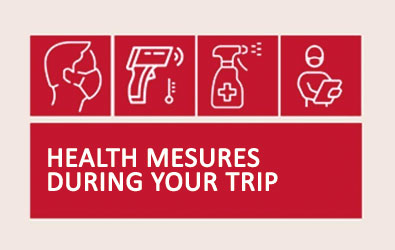
Our sanitary measures
For your safety we have put in place sanitary measures throughout your journey
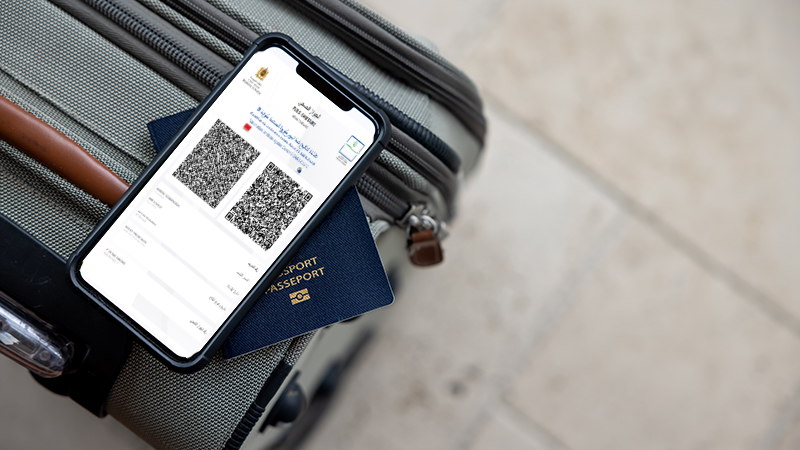
Steps for the Health Pass
Discover all the advantages regarding the Health Pass tests that facilitate and streamline your travel
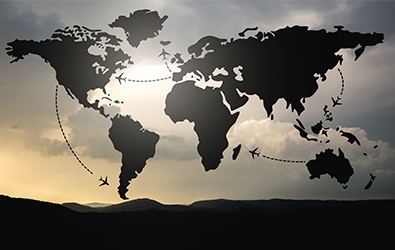
Our network
Check the destinations served by Royal Air Maroc, in Morocco and worldwide
COVID-19 NEWS

UK tourists in Morocco warned they can't leave unless passport has 'stamp'
T he UK Foreign Office has issued a warning over holidays in Morocco as people run into "difficulties" at airports. The UK Foreign Office has issued a warning to British tourists travelling to Morocco after the Moroccan embassy in the UK warned tourists should have a minimum of three months remaining on their passport.
If they do not, then they risk being turned away at the airport . Other holidaymakers were denied entry due to damaged passports or because their passports lacked an entry stamp, according to reports from other Brit tourists and travellers.
"When entering the country, make sure your passport is stamped. Some travellers have experienced difficulties leaving the country because their passport has no entry stamp," the UK Foreign Office has also warned Brits abroad.
READ MORE UK mini heatwave within hours will see England 'hotter than Ibiza and Italy'
Marrakech is Morocco's most visited city, with over 600,000 people a year travelling from the UK. Responding to the warning on TripAdvisor, a Brit said: "If you read the FCO advise for any country you will see that it is negative as they are warning against the potential pitfalls of travel. If you look at the UK Home Office website you may be alarmed about the security threat and want to leave, as I believe the threat level is still classed as 'severe'!
"The main things to notice from the FCO advice are that there are no travel restrictions in place for Morocco and there haven't been any the whole time that I have lived here (and that is a while now). Use your common sense and you will be fine."
A second agreed, writing: "In my opinion, you will be treated well in Morocco. I have found that Moroccans are very kind and hospitable. Enjoy your trip!" Another said: "I have travelled thousands and thousands of kilometers in Morocco and have not personally been in an accident."
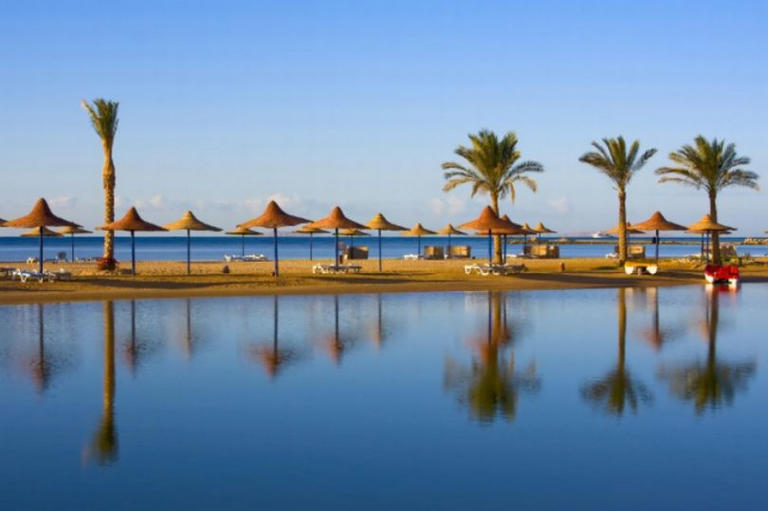
Update April 12, 2024
Information for u.s. citizens in the middle east.
- Travel Advisories |
- Contact Us |
- MyTravelGov |
Find U.S. Embassies & Consulates
Travel.state.gov, congressional liaison, special issuance agency, u.s. passports, international travel, intercountry adoption, international parental child abduction, records and authentications, popular links, travel advisories, mytravelgov, stay connected, legal resources, legal information, info for u.s. law enforcement, replace or certify documents.
Before You Go
Learn About Your Destination
While Abroad
Emergencies
Share this page:
Travel Advisory July 13, 2023
Morocco - level 2: exercise increased caution.
Reissued with obsolete COVID-19 page links removed.
Exercise increased caution in Morocco due to terrorism .
Country Summary : Terrorist groups continue plotting possible attacks in Morocco. Terrorists may attack with little or no warning, targeting tourist locations, transportation hubs, markets/shopping malls, and local government facilities.
Read the country information page for additional information on travel to Morocco.
If you decide to travel to Morocco:
- Stay alert in locations frequented by tourists.
- Avoid demonstrations and crowds.
- Enroll in the Smart Traveler Enrollment Program (STEP) to receive Alerts and make it easier to locate you in an emergency.
- Follow the Department of State on Twitter and Facebook .
- Review the Country Security Report for Morocco.
- Visit the CDC page for the latest Travel Health Information related to your travel.
- Prepare a contingency plan for emergency situations. Review the Traveler’s Checklist .
Embassy Messages
View Alerts and Messages Archive
Quick Facts
Must have at least six months of validity at time of entry
One page required for entry stamp
Not required for stays under 90 days
None
Declare large quantities at entry
Export of Moroccan currency is prohibited
Embassies and Consulates
U.s. consulate general casablanca.
8 Boulevard Moulay Youssef, Casablanca, Morocco
Telephone: +(212) (522) 642-099
Emergency After-Hours Telephone: +(212)(661) 13-19-39
Fax: +(212) (522) 29-77-01
The normal work week in Morocco is Monday through Friday.
U.S. Embassy Rabat
KM 5.7, Avenue Mohammed VI Souissi, Rabat 10170, Morocco
Telephone: +(212)(537) 63-72-00
Emergency After-Hours Telephone: +(212)(661)13-19-39
Fax: +(212)(537) 63-72-01
Please note that U.S. Embassy Rabat does not offer consular services and does not have entry facilities for public visitors.
Destination Description
Learn about the U.S. relationship to countries around the world.
Entry, Exit and Visa Requirements
Passports and Visas:
- You must have a valid passport with at least one blank page.
- Visas are not required for visits lasting less than 90 days. Visit the Embassy of the Kingdom of Morocco website for the most current visa information.
- Overstays: If you remain in Morocco beyond 90 days without having requested an extension of stay, you will need to appear before a judge prior to departing Morocco. Please contact the immigration office at your local police station for details. Clearance may include the payment of a fine.
- Lost/Stolen Passports: Please obtain a police report for a lost or stolen passport in the area where the loss or theft occurred. Recently, police have required evidence of U.S. citizenship prior to issuing the report of loss. In these cases, U.S. citizens may visit U.S. Consulate General Casablanca to obtain a temporary emergency passport prior to obtaining a report of loss.
- Travelers who plan to reside in Morocco must obtain a residence permit, (Certificat d’Immatriculation) Applications should be submitted to the Bureau des Etrangers of the Prefecture de Police or Commissariat Central in major cities, and to the Gendarmerie in remote areas and villages. Please see Residency Permits section under the Local Laws & Special Circumstances tab.
- Carry a copy of your U.S. passport with you at all times to have proof of identity and U.S. citizenship readily available, if needed.
- Children who possess U.S. passports and who are born to a Moroccan father may experience difficulty leaving Morocco without the father's permission, even if the parents are divorced and the mother has legal custody. Under Moroccan law, these children are considered Moroccan citizens.
- U.S. citizen women married to Moroccans do not need their spouse's permission to leave Morocco.
HIV/AIDS: The U.S. Department of State is unaware of any HIV/AIDS entry restrictions for visitors to or foreign residents of Morocco.
Find information on dual nationality , prevention of international child abduction , and customs regulations on our websites.
Safety and Security
All countries in the region remain vulnerable to attacks from transnational terrorist organizations or individuals inspired by extremist ideology with little or no warning. The potential for terrorist violence against U.S. interests and citizens exists in Morocco. Long an important counterterrorism partner with the United States, Morocco’s capable security services have taken robust actions to guard against terrorist attacks. Moroccan authorities continue to disrupt groups seeking to attack U.S. or Western-affiliated and Moroccan government targets, arresting numerous individuals associated with international terrorist groups. Nevertheless, credible information indicates terrorist groups continue to plot potential attacks in the region, including Morocco. Lone wolf attacks are difficult to detect and disrupt and can occur without warning. In December 2018, two Scandinavian tourists were murdered by three Islamic State of Iraq and Syria (ISIS) supporters in the Imlil Mountains near Marrakesh. U.S. citizens are reminded to remain vigilant with regards to their personal security.
Establishments that are identifiable with the United States are potential targets for attacks. These may include facilities where U.S. citizens and other foreigners congregate, including clubs, restaurants, places of worship, schools, hotels, movie theaters, U.S. brand establishments, and other public areas. U.S. citizen campers should camp in guarded campgrounds rather than isolated campsites.
Demonstrations: Demonstrations occur frequently in Morocco, are typically focused on political or social issues, and are only rarely confrontational or violent.
- During periods of heightened regional tension, large demonstrations may take place in major cities.
- By law, all demonstrations require a government permit, but spontaneous unauthorized demonstrations, which have greater potential for violence, can occur. In addition, different unions or groups may organize strikes to protest an emerging issue or government policy.
- Travelers should be aware of current events in Morocco and stay informed of regional issues that could resonate in Morocco and create an anti-American response.
- Avoid demonstrations if at all possible.
- If caught in a demonstration, remain calm and move away immediately when provided the opportunity.
- Exercise increased vigilance in areas that attract large crowds, such as sporting events.
Western Sahara: From 1975 to 1991, Western Sahara was the site of armed conflict between Moroccan government forces and the POLISARIO Front, which continues to seek independence for the territory. Tensions along the border in Western Sahara heightened in November 2020 when Moroccan forces conducted an operation on the border to clear a blockade by the POLISARIO Front; both sides have since engaged in a low intensity conflict along the border. There are thousands of unexploded mines in the Western Sahara and in areas of Mauritania adjacent to the Western Saharan border. Exploding mines are occasionally reported and have caused death and injury. There have been instances in which U.S. citizens suspected of being participants in political protests or of supporting NGOs that are critical of Moroccan policies have been expelled from, or not been allowed to enter, Western Sahara.
Crime: Crime in Morocco is a serious concern, particularly in major cities and tourist areas.
- Use common sense and the same personal security measures you would normally use in a large U.S. city or tourist destination.
- Do not leave bags unattended. Keep them in sight and avoid placing passports, cash, cell phones, or other valuables in the outer pockets of backpacks or purses, or on tables in public places. Do not leave bags slung over the backs of chairs, on hotel or store counters, on top of your suitcase or larger travel bag, or out of your physical control in hotel lobbies, train stations, restaurants, and other public locations.
- Aggressive panhandling, pick-pocketing, purse-snatching, theft from unoccupied vehicles, and harassment of women are the most frequently reported issues.
- Criminals use weapons, primarily knives, during some street robberies and burglaries. These crimes have occurred at any time of day or night, not only in isolated places or areas less frequented by visitors, but in crowded areas as well.
- Residential break-ins also occur and have on occasion turned violent, but most criminals look for opportunities based on stealth rather than confrontation.
- Travelers should avoid soccer stadiums and their environs on days of scheduled matches as large groups of team supporters have been known to become unruly and harass and assault bystanders.
- Joggers should be mindful of traffic and remain in more heavily populated areas. It is always best to have a jogging companion, dress modestly, and avoid isolated areas or jogging at night.
- At night and when moving about unfamiliar areas, avoid traveling alone and utilize “petit” taxis which vary by color in the major cities (Casablanca-Red, Rabat-Blue, Marrakech-Tan, etc.).
- Taxis* in Morocco are generally crime-free during day time, although city buses are not considered safe.
- Trains are generally safe, but theft, regardless of the time of day, sometimes occurs.
- Avoid carrying large sums of cash and be particularly alert when using ATM machines. In the event you are victimized by crime or an attempted crime, please report the incident to the local police and the U.S. Consulate General in Casablanca as soon as possible.
* NOTE: Some popular web-based ride-sharing services have operated in Morocco; however, the French-based company Heetch is currently the only service legally authorized to operate by the Moroccan Government. Media report that drivers of web-based ride-sharing services have been harassed and assaulted by regular taxi drivers in the recent past.
Victims of Crime: U.S. citizen victims of crimes should contact the local police at 19 from a land line or 190 from a mobile phone, and the U.S. Consulate in Casablanca at (212) 522 64 20 99. Remember that the local authorities are responsible for investigating and prosecuting crimes. See our webpage on help for U.S. victims of crime overseas .
- help you find appropriate medical care;
- assist you in reporting a crime to the police;
- with written consent, contact your relatives or friends;
- explain the local criminal justice process in general terms;
- provide a list of local attorneys;
- provide information on victim’s compensation programs in the United States;
- provide an emergency loan for repatriation to the United States and/or limited medical support in cases of destitution;
- help you find accommodation and arrange flights home;
- replace a stolen or lost passport.
Tourism : The tourism industry is generally regulated in major tourist areas. Hazardous areas/activities are identified with appropriate signage and professional staff is typically on hand in support of organized activities. However, outside of these areas, the tourism industry is unevenly regulated, and safety inspections for equipment and facilities do not commonly occur. Hazardous areas/activities are not always identified with appropriate signage, and staff may not be trained or certified either by the host government or by recognized authorities in the field. In the event of an injury, appropriate medical treatment is typically available only in/near major cities. Outside of a major metropolitan center, it may take more time for first responders and medical professionals to stabilize a patient and provide life-saving assistance. U.S. citizens are encouraged to purchase medical evacuation insurance. See our webpage for more information on insurance providers for overseas coverage.
Local Laws & Special Circumstances
Criminal Penalties: You are subject to local laws. If you violate local laws, even unknowingly, you may be expelled, arrested, or imprisoned. In some places you may be taken in for questioning if you don’t have your passport with you.
Furthermore, some laws are also prosecutable in the U.S., regardless of local law. For examples, see our website on crimes against minors abroad and the Department of Justice website.
Arrest Notification : If you are arrested or detained, ask police or prison officials to notify the U.S. Consulate immediately. See our webpage for further information.
- Crimes of fraud, including passing bad checks, non-payment of bills (including hotel bills), or breach of contract are considered serious in Morocco and can often result in imprisonment and/or fines.
- Bail generally is not available to non-residents of Morocco who are arrested for crimes involving fraud.
- Debtors can be held in prison until their debts are paid or until an agreement is reached between the parties.
- Passports may be seized by the Moroccan government to guarantee that debtors settle their cases.
- Debtors may be unable to work in Morocco without passports while still being held responsible for their debts.
- Prior to entering into a contract, you may want to consider consulting an attorney.
Faith-Based Travelers : Islam is the official religion in Morocco. However, the constitution provides for the freedom to practice one's religion. The Moroccan government does not interfere with public worship by the country’s Jewish minority or by expatriate Christians. Proselytizing is, however, prohibited. In the past, U.S. citizens have been arrested, detained, and/or expelled for discussing or trying to engage Moroccans in debate about Christianity. In February 2014, several U.S. citizens were expelled from Morocco for alleged proselytizing. Many of those expelled were long-time Moroccan residents. In these cases, U.S. citizens were given no more than 48 hours to gather their belongings or settle their affairs before being expelled. See the Department of State’s International Religious Freedom Report .
LGBTI Travelers: Consensual same-sex sexual relations are criminalized in Morocco. Penalties include fines and jail time. See our LGBTI Travel Information page and section 6 of our Human Rights report for further details.
Travelers Who Require Accessibility Assistance: While in Morocco, individuals with disabilities may find accessibility and accommodation very different from what is customary in the United States.
Students: See our Students Abroad page and FBI travel tips .
Women Travelers : Women walking alone in certain areas of cities and rural areas are particularly vulnerable to assault by men. They should exercise caution when in public spaces, including nightclubs or other social establishments. Women are advised to travel with a companion or in a group when possible and to ignore any harassment. See our tips for Women Travelers .
Customs: Travelers must declare large quantities of U.S. dollars brought into the country at the port of entry. The export of Moroccan currency (dirhams) is prohibited; however, Moroccan currency can be converted back into U.S. dollars prior to departure only if the traveler has a bank or money transfer receipt indicating he or she exchanged dollars for dirhams while in Morocco.
Moroccan customs authorities may enforce strict regulations concerning temporary importation into or export from Morocco of items such as firearms, unmanned aerial vehicle (UAV) or drones, religious materials, antiquities, business equipment, and large quantities of currency. It is advisable to contact the Embassy of Morocco in Washington, D.C., or the Moroccan Consulate General in New York for specific information concerning customs requirements.
Please see our information on Customs and Import Restrictions.
Citizenship : The Government of Morocco considers all persons born to Moroccan fathers to be Moroccan citizens. In addition to being subject to all U.S. laws, U.S. citizens who also possess the nationality of Morocco may be subject to other laws that impose special obligations on citizens of Morocco. Recently, Morocco has begun allowing Moroccan mothers of children born outside Morocco to petition for their children’s citizenship. For further information on that process, please contact the Embassy of Morocco in Washington, D.C., or the Moroccan Consulate General in New York .
Residency Permits: In order to obtain a residence permit, travelers must present (among other requirements) a criminal history record check. This record check can only be obtained in the United States. The U.S. Consulate and Embassy are unable to take fingerprints to send for FBI record requests. For specific information, individuals seeking residency should visit their local police station.
The following documents must accompany a residency renewal application:
- Birth Certificate
- Copy of the current passport
- Copy of the current Moroccan residency card
- Medical certificate from a doctor stating that the requester is free from any contagious disease
- Court record (Casier Judiciaire) obtained from the Ministry of Justice in Rabat
- 100 MAD stamp
Individuals planning on residing in Morocco or relocating to the U.S. may be asked to provide a notarized change of residence form. This form is available at the U.S. Consulate by appointment.
Sending Passports through the Mail: According to Moroccan law, it is prohibited to send passports by mail across international borders. Passports sent to or through Morocco via Fedex, DHL, or other courier will be confiscated by Moroccan authorities. Confiscated U.S. passports are eventually sent to the U.S. Consulate General in Casablanca after being processed by the Ministry of Foreign Affairs. If your passport has been confiscated, you can contact the American Citizens Services section at [email protected] to ask if it has been received.
Property: U.S. consular officers are prohibited by law and regulation from accepting personal property for safekeeping regardless of the circumstances involved. If there is concern over the protection of property left behind in Morocco due to confiscation or deportation for political, legal, or other reasons, U.S. citizens should take every precaution to ensure that available legal safeguards are in place either before, or immediately after, purchasing property in Morocco or taking up residence there. U.S. citizens are also encouraged to consider assigning a Power of Attorney, or Procuration, to be used in Morocco if necessary. More information and sample Power of Attorney forms are available on the Consulate General of the Kingdom of Morocco in New York website.
Photographing Sensitive Locations: Taking photographs of anything that could be perceived as being of military or security interest may result in problems with the authorities. As a general rule, travelers should not photograph palaces, diplomatic missions, government buildings, or other sensitive facilities and when in doubt should ask permission from the appropriate Moroccan authorities.
Professional Basketball in Morocco: The U.S. Consulate General in Casablanca is aware that there are local professional basketball teams who have made contracts with U.S. citizens to play on Moroccan teams. Some of these players have subsequently claimed they were not paid as stipulated per the terms of the contract. Individuals considering playing basketball professionally in Morocco may wish to consult with a lawyer regarding the terms of their contract prior to signing. A list of lawyers can be found on the Embassy's webpage.
Adequate medical care is available in Morocco’s largest cities, particularly in Rabat and Casablanca, although not all facilities meet Western standards.
- Emergency and specialized care outside the major cities is far below U.S. standards and may not be available at all.
- Most medical staff will have limited or no English-speaking ability.
- Most ordinary prescription and over-the-counter medicines are widely available.
- Specialized prescriptions may be difficult to fill and availability of all medicines in rural areas is unreliable.
- Travelers should not ask friends or relatives to send medications through the mail, FedEx, or UPS since Moroccan customs will impound the delivery and not release it to the recipient.
- Travelers planning to drive in the mountains and other remote areas may wish to carry a medical kit and a Moroccan phone card for emergencies.
- In the event of vehicle accidents involving injuries, immediate ambulance service is usually not available. The police emergency services telephone number is “190” (see Traffic Safety and Road Conditions section below).
The U.S. Mission in Morocco is unable to pay your medical bills. Be aware that U.S. Medicare does not apply overseas.
Medical Insurance: Make sure your health insurance plan provides coverage overseas. Most care providers overseas only accept cash payments. You may also be required to pay a deposit before being admitted for treatment. See our webpage for more information on insurance providers for overseas coverage . We strongly recommend supplemental insurance to cover medical evacuation.
If traveling with prescription medication, check with the Government of Morocco Ministry of Foreign Affairs to ensure the medication is legal in Morocco. Always carry your prescription medication in original packaging, along with your doctor’s prescription.
Vaccinations: Be up-to-date on all vaccinations recommended by the U.S. Centers for Disease Control and Prevention.
Further health information:
- World Health Organization
- U.S. Centers for Disease Control and Prevention (CDC)
Travel and Transportation
Road Conditions and Safety: Traffic accidents are a significant hazard in Morocco. Driving practices are very poor and have resulted in serious injuries to and fatalities of U.S. citizens. This is particularly true at dusk during the Islamic holy month of Ramadan, when adherence to traffic regulations is lax, and from July to September when Moroccans resident abroad return from Europe by car in large numbers.
- Drivers should exercise extreme caution when driving at night due to poor lighting systems along roads.
- Traffic signals do not always function, and are sometimes difficult to see.
- Modern freeways link the cities of Tangier, Rabat, Fez, Casablanca, and Marrakesh. Two-lane highways link other major cities.
- Secondary routes in rural areas are often narrow and poorly paved. Roads through the Rif and Atlas mountains are steep, narrow, windy, and dangerous.
- Pedestrians, scooters, and animal-drawn conveyances are common on all roadways, including the freeways, and driving at night should be avoided if possible.
- During the rainy season (November - March), flash flooding is frequent and sometimes severe, washing away roads and vehicles in rural areas.
Traffic Laws: In the event of a traffic accident, including accidents involving injuries, the parties are required to remain at the scene and not move their vehicles until the police have arrived and documented all necessary information. The police emergency services telephone number is “190”. Often Moroccan police officers pull over drivers for inspection within the city and on highways.
Traffic Fines: Confiscation of a driver’s license is possible if a violator is unable or unwilling to settle a fine at the time of a traffic stop.
If you are stopped for a speeding violation, you have the right to request the video footage documenting the infraction. Once the speeding violation is confirmed, you have three options:
- Pay the fine on the spot and obtain a receipt of payment;
- Pay at the local city’s treasury (La Perception). The police/gendarme officer will issue you a ‘ticket’ indicating the amount of the fine and keep your driver’s license until you pay the fine.
- Should you wish to contest a violation, you may file a complaint at court; however, Moroccan authorities may keep your driver’s license and vehicle registration while this lengthy process takes place.
Foreign driver’s licenses are valid for use in Morocco for up to one year. After that, foreign residents must pass the Moroccan driver’s test and obtain a Moroccan driver’s license. The test is conducted in Arabic and French. Speakers of other languages are allowed to have a sworn translator with them when taking the test.
Public Transportation: While public buses and taxis are inexpensive, driving habits are poor, and buses are frequently overcrowded. City buses are not considered safe. The train system has a good safety record. Trains, while sometimes crowded, are comfortable and generally on time. See our Road Safety page for more information. Visit Morocco’s National Tourism website for additional information.
- Train Station Hotline: 0890 20 30 40
- Bus Station Hotline: 0800 09 00 30
- Directory Enquiry- 160
Web-based ride-sharing services are not legal in Morocco; however, some well-known companies (UBER and Careem) have attempted operations with limited success. Media reports of ride-sharing drivers being harassed and assaulted by regular taxi drivers were common.
Aviation Safety Oversight: The U.S. Federal Aviation Administration (FAA) has assessed the Government of Morocco’s Civil Aviation Authority as being in compliance with International Civil Aviation Organization (ICAO) aviation safety standards for oversight of Morocco’s air carrier operations. Further information may be found on the FAA’s safety assessment page .
Maritime Travel: Mariners planning travel to Morocco should also check for U.S. maritime advisories and alerts at www.marad.dot.gov/msci . Information may also be posted to the U.S. Coast Guard homeport website (https://homeport.uscg.mil), and the NGA broadcast warnings website https://msi.nga.mil/NGAPortal/MSI.portal (select “broadcast warnings”).
For additional travel information
- Enroll in the Smart Traveler Enrollment Program (STEP) to receive security messages and make it easier to locate you in an emergency.
- Call us in Washington, D.C. at 1-888-407-4747 (toll-free in the United States and Canada) or 1-202-501-4444 (from all other countries) from 8:00 a.m. to 8:00 p.m., Eastern Standard Time, Monday through Friday (except U.S. federal holidays).
- See the State Department’s travel website for the Worldwide Caution and Travel Advisories .
- Follow us on Twitter and Facebook .
- See traveling safely abroad for useful travel tips.
Review information about International Parental Child Abduction in Morocco . For additional IPCA-related information, please see the International Child Abduction Prevention and Return Act ( ICAPRA ) report.
Travel Advisory Levels
Assistance for u.s. citizens, morocco map, learn about your destination, enroll in step.

Subscribe to get up-to-date safety and security information and help us reach you in an emergency abroad.
Recommended Web Browsers: Microsoft Edge or Google Chrome.
Check passport expiration dates carefully for all travelers! Children’s passports are issued for 5 years, adult passports for 10 years.
Afghanistan
Antigua and Barbuda
Bonaire, Sint Eustatius, and Saba
Bosnia and Herzegovina
British Virgin Islands
Burkina Faso
Burma (Myanmar)
Cayman Islands
Central African Republic
Cote d Ivoire
Curaçao
Czech Republic
Democratic Republic of the Congo
Dominican Republic
El Salvador
Equatorial Guinea
Eswatini (Swaziland)
Falkland Islands
France (includes Monaco)
French Guiana
French Polynesia
French West Indies
Guadeloupe, Martinique, Saint Martin, and Saint Barthélemy (French West Indies)
Guinea-Bissau
Isle of Man
Israel, The West Bank and Gaza
Liechtenstein
Marshall Islands
Netherlands
New Caledonia
New Zealand
North Korea (Democratic People's Republic of Korea)
Papua New Guinea
Philippines
Republic of North Macedonia
Republic of the Congo
Saint Kitts and Nevis
Saint Lucia
Saint Vincent and the Grenadines
Sao Tome and Principe
Saudi Arabia
Sierra Leone
Sint Maarten
Solomon Islands
South Africa
South Korea
South Sudan
Switzerland
The Bahamas
Timor-Leste
Trinidad and Tobago
Turkmenistan
Turks and Caicos Islands
United Arab Emirates
United Kingdom
Vatican City (Holy See)
External Link
You are about to leave travel.state.gov for an external website that is not maintained by the U.S. Department of State.
Links to external websites are provided as a convenience and should not be construed as an endorsement by the U.S. Department of State of the views or products contained therein. If you wish to remain on travel.state.gov, click the "cancel" message.
You are about to visit:

IMAGES
VIDEO
COMMENTS
Read the country information page for additional information on travel to Morocco. If you decide to travel to Morocco: Stay alert in locations frequented by tourists. Avoid demonstrations and crowds. Enroll in the Smart Traveler Enrollment Program (STEP) to receive Alerts and make it easier to locate you in an emergency.
Following the decision of the Moroccan authorities, the health restrictions ( PCR or Vaccinal Pass) at the entrance to Moroccan territory are lifted. Starting from April 5th, 2023, Morocco reopens its borders to visitors from China, following the lifting of access restrictions put in place last December to combat Covid-19.
Call us in Washington, D.C. at 1-888-407-4747 (toll-free in the United States and Canada) or 1-202-501-4444 (from all other countries) from 8:00 a.m. to 8:00 p.m., Eastern Standard Time, Monday through Friday (except U.S. federal holidays). See the State Department's travel website for the Worldwide Caution and Travel Advisories.
Morocco has lifted its remaining COVID-19 travel restrictions. As of 30 September 2022, visitors no longer need to present a vaccine pass or PCR test to enter the country. However, a passenger ...
Morocco officially lifted its international travel ban and reopened to vaccinated foreign visitors on February 7.But, there are some requirements you'll need to follow in order to enter. The move to open the borders follows "the evolution of the epidemiological situation in the kingdom" said a government statement via AFP, as hospitalization numbers stabilize across the North African country.
Latest FCDO travel advice for Morocco including on entry requirements, safety and security and local laws and customs.
Vaccination is not mandatory for entry into Morocco. There are no COVID-19 restrictions in place for travel to Morocco. There is no requirement to present certificates of vaccination/testing for COVID-19. Please note that not more than four (4) months must have passed since the administration of the second dose of a two-dose vaccine.
Following the decision of the Moroccan authorities, the health restrictions (PCR or Vaccinal Pass) at the entrance to Moroccan territory are lifted starting from today. Only the passenger's health form must be presented duly completed. 28 May 2022 / New travel conditions to enter Morocco:
Morocco has officially welcomed tourists back after being closed to visitors due to the COVID-19 pandemic. ... Alison Fox is a Travel + Leisure ... U.S. Lifts Travel Restrictions on Southern ...
Passport validity requirements. The embassy of Morocco in the UK advise that your passport should be valid for at least 3 months on your date of entry to Morocco. If your passport does not meet ...
Children under the age of six are exempt from the pre-travel PCR test requirement, and children under the age of 18 are exempt from the requirement to present a vaccine pass.
However, the Moroccan Consulate General in London advises having a minimum of three months validity left on your passport on your date of entry into Morocco. More about Travel rules
Check the latest news and check the health and travel restrictions ahead of your travel. Find out more about . Our sanitary measures. For your safety we have put in place sanitary measures throughout your journey. ... in Morocco and worldwide. Read about. Footer. Footer links. Site map. Booking Online Check-in Book a flight Pay Now ...
Following the decision of the Moroccan authorities since 27th February 2023, travelers wishing to travel to Morocco, does not need any required document or any vaccination proof in order to enter Moroccan territory. Advertisement. Latest Moroccan Travel Rules For Covid-19, Morocco Guide website has compiled a list of resources for those ...
You can see the sense of relief on the faces of shopkeepers and restaurant and hotel staff as they welcome you in. Borders are open, restrictions mostly lifted and Morocco's impressive cities, magnificent mountains and expansive beaches are welcoming visitors once again.. In 2018, almost 10 million people visited Morocco, but the pandemic put a wrench in the works for tourism, and less than ...
The border is patrolled and monitored closely by the authorities. Do not attempt to cross the border. If you are in a boat or jet ski, ensure you know where the maritime border is and remain ...
Morocco Travel Advice travel documents: passport. A passport is a transport document delivered by the government of your country. In some countries, the ticket must be valid between 3 and 6 months after entry or exit from the country's territory. ... Morocco is accessible, but entry requirements and restrictions vary by country of origin and ...
If your travel plans in Morocco include outdoor activities, take these steps to stay safe and healthy during your trip. Stay alert to changing weather conditions and adjust your plans if conditions become unsafe. Prepare for activities by wearing the right clothes and packing protective items, such as bug spray, sunscreen, and a basic first aid ...
For travel to the United States on a temporary basis, including tourism, temporary employment, study and exchange. Read More. ... U.S. Citizens with emergencies (dialing from Morocco), please call (212) 05-37-63-72-00. U.S. Citizens with emergencies (dialing from outside Morocco), please call +212-537-63-72-00.
You might face entry restrictions in countries that do not recognize the "X" gender identifier. Before you leave, check with the closest foreign representative for your destination. ... 2SLGBTQI+ travellers should carefully consider the risks of travelling to Morocco. Travel and your sexual orientation, gender identity, gender expression ...
Check the latest news and check the health and travel restrictions ahead of your travel. Find out more about . Our sanitary measures. For your safety we have put in place sanitary measures throughout your journey ... in Morocco and worldwide. Read about. COVID-19 NEWS. Access to the news . Footer. Footer links. Site map. Booking . Book a flight ...
Morocco has strict laws around religion, the monarchy, alcohol, drug use, photography, pornography and drone use. Morocco recognises dual nationality, but Moroccan citizenship takes precedence. This can affect child custody disputes and military service requirements. Always travel on your Australian passport. Moroccan society is conservative.
Check the latest news and check the health and travel restrictions ahead of your travel. Find out more about . Ticket flexibility. ... Check the destinations served by Royal Air Maroc, in Morocco and worldwide. Read about. COVID-19 NEWS. Access to the news Footer. Footer links. Site map. Booking Book a flight Online Check-in ...
Morocco Travel Advisory: Level 2: Exercise Increased Caution: July 13, 2023: Mozambique Travel Advisory: Level 2: Exercise Increased Caution: July 31, 2023: ... You are about to leave travel.state.gov for an external website that is not maintained by the U.S. Department of State.
"The main things to notice from the FCO advice are that there are no travel restrictions in place for Morocco and there haven't been any the whole time that I have lived here (and that is a while ...
Call us in Washington, D.C. at 1-888-407-4747 (toll-free in the United States and Canada) or 1-202-501-4444 (from all other countries) from 8:00 a.m. to 8:00 p.m., Eastern Standard Time, Monday through Friday (except U.S. federal holidays). See the State Department's travel website for the Worldwide Caution and Travel Advisories.